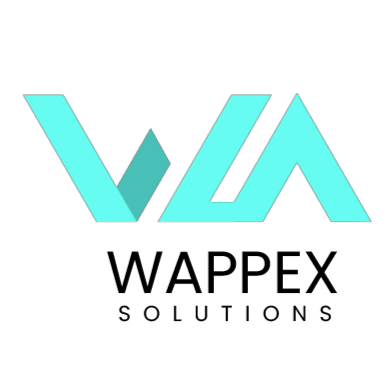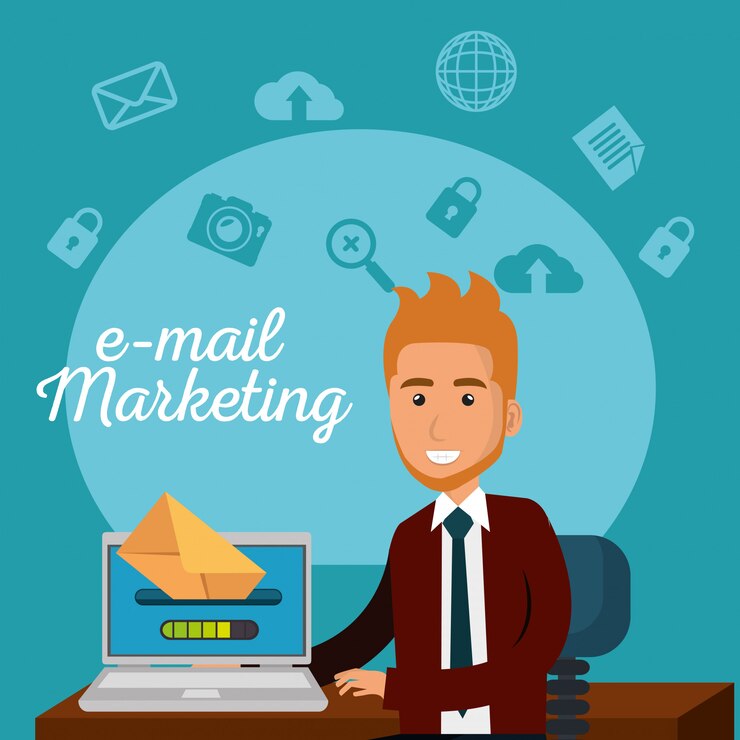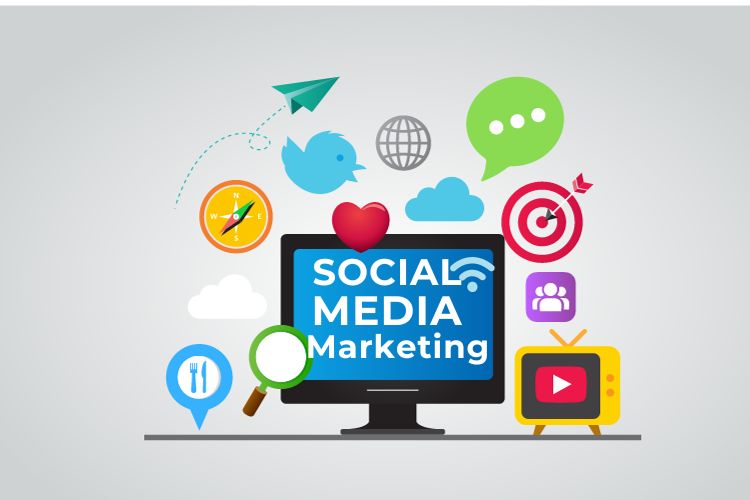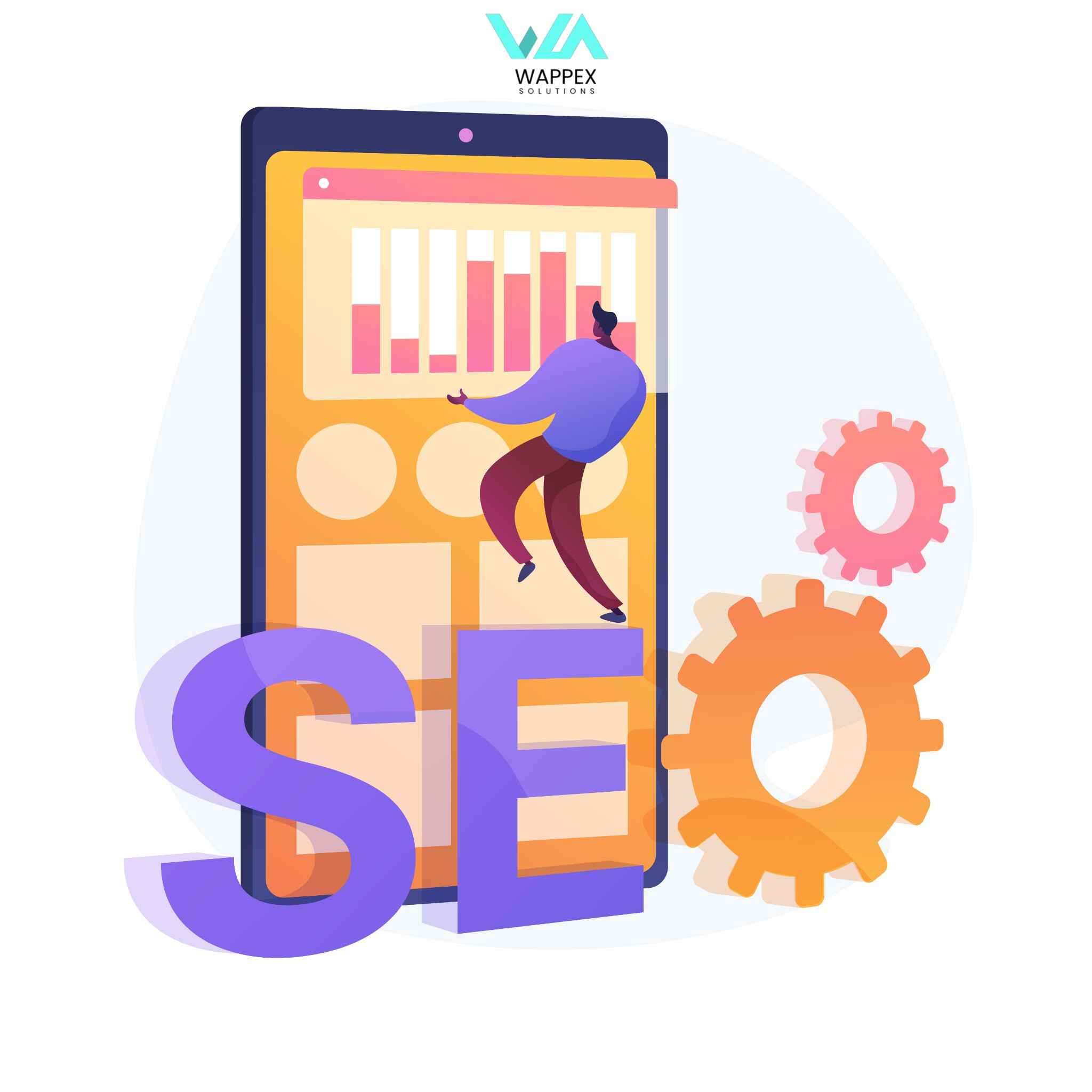Email Marketing Tips 2024: Boost Your Business with Strategic Insights
Tips for Email Marketing in 2024: Boost Your Business
In the fast-paced world of digital marketing, Email marketing Service remains a powerful tool for connecting businesses with their target audience. As we step into 2024, mastering the art of email marketing is more critical than ever. From choosing the right software to navigating regulatory landscapes, this article serves as your guide to effective email marketing in the current landscape. Explore the latest strategies, discover affordable solutions, and delve into the intersection of AI and automation. Whether you’re a small business owner, marketer, or aspiring entrepreneur, these tips will elevate your email marketing game. Let’s dive into the dynamic realm of email marketing and unlock the strategies that will propel your success in 2024.
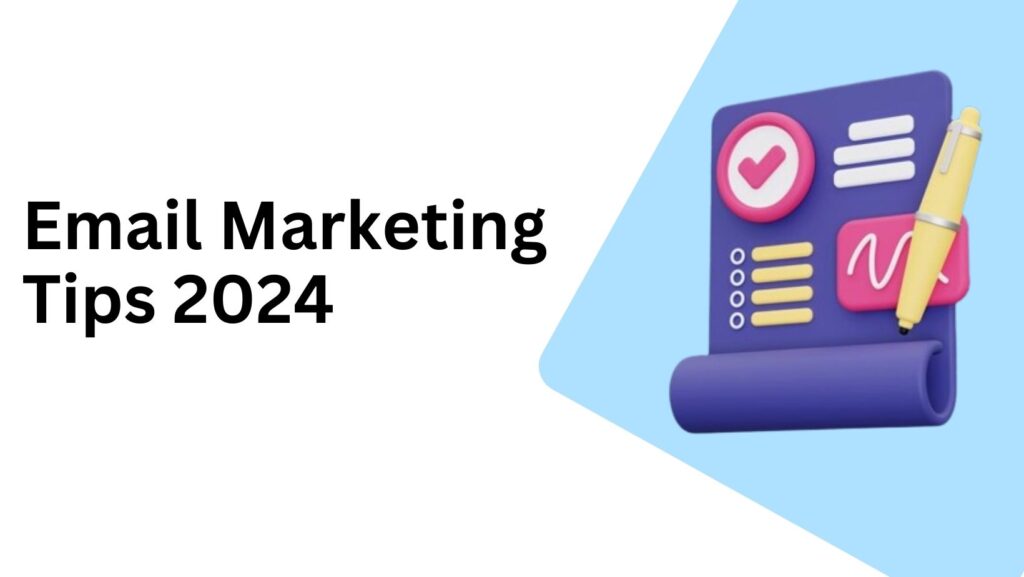
B2B Email Marketing Services
B2B Email Marketing Services focus on tailored email campaigns for business audiences, addressing unique needs. These services offer personalized content, automation tools, and analytics for efficient and targeted communication. By leveraging these services, businesses can establish meaningful relationships, drive lead generation, and foster partnerships, contributing to overall growth in the digital B2B landscape.
Starting Your Email Marketing Agency: A Proven Blueprint
Unveiling the Power of Cold Email Marketing Services
Creating effective cold email marketing services needs skill and planning. In the busy digital world, knowing how to build connections through emails is super important. It’s like understanding the special details that make relationships strong. Now, let’s move on to the next important thing:
Decoding Relationship Emails in Email Marketing
One important thing that people often forget is the power of relationship emails in the world of email marketing. These emails are all about making a connection with your audience, building trust, and growing long-lasting relationships. It’s like planting seeds for a strong bond with the people you’re talking to through emails. Now, let’s explore the hidden tricks to create relationship emails that really connect with your audience.
B2B Lead Generation: Elevate Your Business
In B2B lead generation, email marketing is a powerful tool. This strategy involves targeted email campaigns to attract, engage, and convert potential clients into high-quality leads. To optimize B2B lead generation, businesses can use advanced tactics such as personalized content, segmentation, automation tools for efficient communication, compelling calls-to-action, and analytics for measuring success. These strategies help businesses connect with clients, build lasting relationships, and succeed in the competitive B2B landscape.
The Role of AI in Email Marketing: A Futuristic Approach
Revolutionizing Email Marketing with Artificial Intelligence
Adding AI to email marketing is like bringing in a game-changing player. It’s a big deal! Imagine smart computer programs (machine learning algorithms) analyzing how people act, customizing content just for them, and making campaigns work better than ever. It’s like having a personal assistant for your emails, making sure they hit the right notes for super success. Let’s uncover the magic of AI in email marketing and see how it can take your campaigns to a whole new level!
Related Search: A Comprehensive Guide to Digital Marketing Services
SEO Email Marketing: Unleashing the Synergy
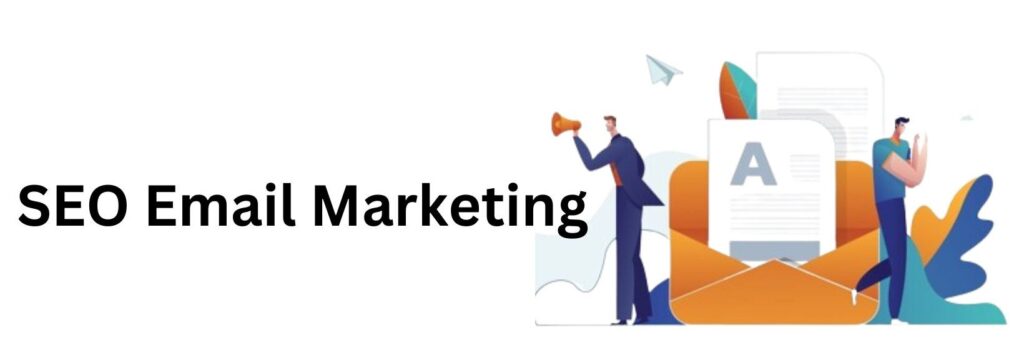
The Intersection of SEO and Email Marketing
In today’s world, being seen is really important. Knowing how SEO (Search Engine Optimization) and email marketing work together is a big deal. Boost your campaigns by blending SEO strategies that go well with your email marketing. Use keywords and phrases in your emails that people might search for. This helps your emails show up when people look for similar things online. By combining these strategies, you can make sure your emails are not only reaching your audience directly but also showing up when they search online, giving your business even more visibility.
B2C Email Marketing: Navigating the Customer Journey
Unlocking the B2C Email Customer Journey
Successfully guiding customers through the B2C (Business to Consumer) email journey requires a smart plan. Understand the different stages your customers go through, like awareness, consideration, and purchase. Tailor your emails to match what your customers need at each stage. In the beginning, share helpful content to create awareness. As they think about buying, provide detailed information and maybe some special offers. When they’re ready to purchase, make the process easy and seamless. By adapting your emails to each stage, you can connect with your customers effectively and provide the right information when they need it most.
Setting Clear Goals: The Foundation of Email Marketing Success
Establishing and Achieving Email Marketing Goals
Think of email marketing like a journey – without a clear destination, it might lose its way. That’s why setting goals is like putting a map in place. Our guide is here to teach you how to figure out and reach your email marketing goals. It’s like making sure your efforts match up with what your business wants to achieve. We’ll walk you through the steps, ensuring that every email you send has a purpose and moves you closer to success. Let’s dive in and make sure your email marketing has a clear and powerful direction!
Inbound Email Marketing: Creating Pull, Not Push
The Power of Inbound Email Marketing
Imagine traditional marketing as shouting your message to a crowd, but inbound email marketing is like drawing people in with something interesting. It’s like a magnetic pull! Our guide is here to show you clever tactics that naturally attract, engage, and turn potential customers into fans. It’s like creating a friendly conversation that makes people genuinely interested in what you have to offer. Let’s explore these strategies together and make your email marketing feel less like a pushy ad and more like an inviting conversation.
Email Marketing Without a Website – A Quick Guide
Leveraging Email Marketing without a Website
Email marketing is a powerful tool for promoting products and engaging with your audience. While having a website is beneficial, it’s not mandatory to kickstart your email marketing efforts. In this guide, we’ll explore how you can effectively leverage email marketing without a website.
- Choose an Email Marketing Service: Select a reliable email marketing service like Mailchimp, Constant Contact, or Sendinblue. These platforms allow you to create and manage email campaigns without the need for a website.
- Build an Email List: Start by building an email list. Utilize social media, forums, and other online platforms to connect with your target audience. Offer incentives like discounts, exclusive content, or free resources to encourage sign-ups.
- Create Compelling Content: Craft engaging and relevant content for your email campaigns. Provide value to your subscribers, whether it’s through informative articles, exclusive promotions, or entertaining content.
- Design Responsive Emails: Ensure your emails are visually appealing and mobile-friendly. Most email marketing services provide templates that make it easy to create professional-looking emails without the need for web design skills.
- Utilize Landing Pages: Although you may not have a website, you can still create simple landing pages using tools like Mailchimp’s landing page feature. Use these pages to capture leads and promote specific offers.
- Segment Your Email List: Divide your email list into segments based on demographics, preferences, or behavior. This allows you to send targeted and personalized content, increasing the effectiveness of your campaigns.
- Implement Calls-to-Action (CTAs): Include clear and compelling CTAs in your emails. Whether it’s encouraging a purchase, promoting social media engagement, or directing users to a landing page, CTAs drive action from your subscribers.
- Monitor and Analyze Results: Track the performance of your email campaigns using the analytics provided by your chosen email marketing platform. Pay attention to open rates, click-through rates, and other relevant metrics to refine your strategy.
Conclusion:
Email marketing can be a potent tool even without a website. By following these steps, you can build a successful email marketing campaign, engage with your audience, and achieve your business goals. Remember to adapt your strategy based on analytics and continuously refine your approach for optimal results.
Financial Advisor Email Marketing: Strategies for Success
Tailoring Email Marketing for Financial Advisors
To build trust as a financial advisor through email marketing, focus on clear and simple communication. Start by sharing valuable financial tips and insights that are easy to understand. Personalize your emails to connect with clients on a more individual level, addressing their specific concerns and goals. Use success stories or case studies to showcase your expertise and demonstrate how you’ve helped others. Offer free resources, like informative guides or webinars, to add value to your audience without expecting anything in return. Respond promptly to inquiries, showing that you’re there to support and guide them. Consistency is key, so maintain a regular email schedule to stay top-of-mind. By prioritizing transparency, education, and personalized interactions, you can establish yourself as a trusted financial expert in your clients’ eyes.
Email Marketing vs. Email Copywriting: Unraveling the Differences
Clarifying the Distinction: Email Marketing vs. Email Copywriting
Email marketing and email copywriting, though sometimes mixed up, have different jobs in your strategy. Email marketing is like the overall plan—deciding who to email, when, and what to say. On the other hand, email copywriting is the words you use in those emails to grab attention and persuade. Think of email marketing as the architect designing a building, and copywriting as the builder crafting each room. Marketing plans how to reach your audience, while copywriting ensures your message is compelling. Both are crucial: marketing sets the direction, and copywriting makes your emails interesting and effective. Understanding and balancing both can supercharge your overall email strategy.
Consulting Email Marketing: Elevate Your Consultancy
Strategic Insights for Consulting Email Marketing
Boost your consultancy’s success with powerful email marketing. We’ll share practical tips to make your consultancy stand out as a leader in the industry through focused email campaigns. Learn how to create emails that grab attention and resonate with your audience. Tailor your messages to showcase your expertise, highlighting the value you bring to clients. By sending targeted emails, you can build trust and stay top-of-mind with your audience. Elevate your consultancy by implementing strategic email marketing that sets you apart in the competitive landscape.
Direct Mail vs. Email Marketing: Choosing the Right Path
Navigating Choices: Direct Mail vs. Email Marketing
In today’s digital world, people often discuss whether direct mail or email marketing is better. Let’s break down the pros and cons of each to help you decide wisely. Direct mail, like postcards or letters, can feel personal and tangible, but it’s costly and might have a slower response. Email marketing, on the other hand, is quick, cost-effective, and easily measurable, but emails can be overlooked or end up in spam folders. Understanding these factors will guide you in choosing the right approach for your marketing strategy, depending on your goals and audience preferences.
Unveiling Email Marketing Solutions and Services
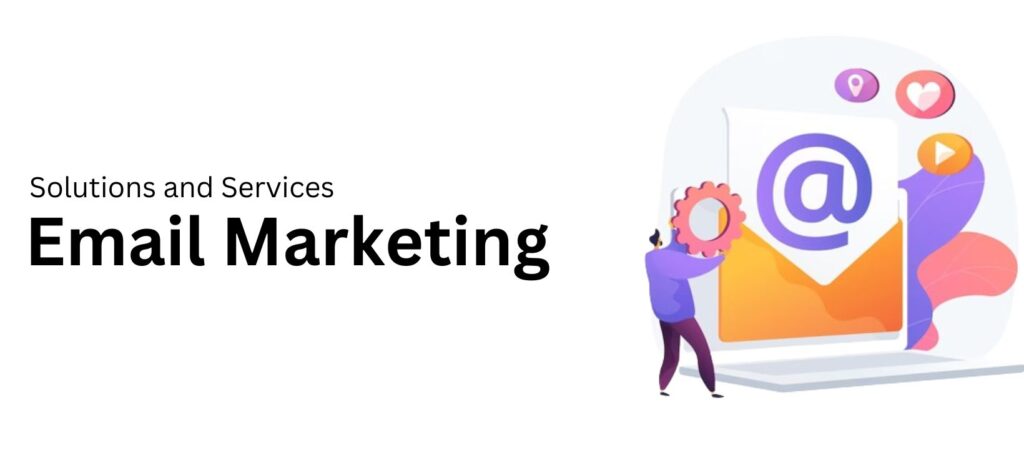
Exploring the Landscape of Email Marketing Solutions
Numerous email marketing software companies provide various solutions. Explore the major players in the market, compare the features they offer, and select the one that best suits your business needs. Look for user-friendly interfaces, customizable templates, and analytics tools to track your campaigns. Consider factors like pricing, scalability, and customer support to ensure the chosen software aligns with your budget and growth plans. By evaluating the features and benefits of different options, you can make an informed decision to enhance your email marketing efforts and achieve better results for your business.
Understanding Email Marketing Regulations
Navigating Regulatory Waters: Who Regulates Email Marketing?
In the always-changing digital world, it’s vital to grasp the rules that govern email marketing. Learn about the entities overseeing these regulations to ensure your practices align with industry standards. Organizations like the Federal Trade Commission (FTC) in the U.S. and similar bodies worldwide set guidelines to protect consumers and maintain fair business practices. Familiarize yourself with anti-spam laws, such as the CAN-SPAM Act, which outlines key requirements for commercial emails. Staying compliant with these regulations not only builds trust with your audience but also avoids legal issues. Regularly check for updates in the regulatory landscape to adapt your email marketing strategies accordingly.
Affordable Email Marketing Services: Quality on a Budget
Unveiling Budget-Friendly Email Marketing Services
For businesses watching their budget, it’s crucial to discover affordable email marketing services without sacrificing quality. Explore options like Mailchimp, Sendinblue, and Moonsend, which offer cost-effective plans for small and growing businesses. These platforms provide essential features like customizable templates, automation, and analytics. Take advantage of free trials and compare pricing structures to find the best fit for your needs. Remember, cost-effectiveness doesn’t mean compromising on functionality, so prioritize services that offer a balance between affordability and the tools necessary to elevate your email marketing efforts.
Email Marketing as a Service: Redefining Strategies
Transformative Approach: Email Marketing as a Service
There’s a new trend moving towards email marketing as a service. When you outsource your email marketing, it can make things smoother and boost your overall strategy. Outsourcing means letting experts handle your email campaigns, saving you time and effort. Professionals can help design appealing emails, manage your subscriber list, and analyze campaign performance. This way, you can focus on your core business activities while ensuring your emails are effective and engaging. Consider the benefits of outsourcing to streamline processes and take your email marketing strategy to the next level.
Best Email Marketing Services for Small Businesses
Tailored Solutions: Best Email Marketing Services for Small Businesses
For small businesses, finding the right email marketing service is crucial. We’ve gathered a list of top-notch options to make your decision easier. Consider services like Mailchimp, Constant Contact, and Sendinblue, tailored to the needs of small enterprises. These platforms offer user-friendly interfaces, affordable plans, and essential features like customizable templates and analytics. Take advantage of free trials to test which service aligns best with your business requirements. By choosing a reliable email marketing service, small businesses can effectively reach their audience, build relationships, and grow their brand without breaking the bank.
The Cheapest Email Marketing Services: Affordable Excellence
Budget-Friendly Excellence: The Cheapest Email Marketing Services
Affordable email marketing services to enhance your campaigns without overspending. Explore options such as Mailchimp, Sendinblue, and Moonsend, which provide essential features at affordable prices. Take advantage of free trials to ensure the chosen service aligns with your needs. These platforms offer customizable templates, automation tools, and analytics, allowing you to optimize your campaigns without compromising on effectiveness. By choosing cost-effective solutions, you can elevate your email marketing strategy while keeping your budget in check, ensuring a balance between quality and affordability.
About Wappex Solutions
At Wappex Solutions, we are committed to helping businesses succeed in the ever-changing digital landscape. Our team of experts specializes in various digital marketing services, including search engine optimization (SEO), digital advertising, social media marketing, and website development. With our expertise, we can help your business thrive in the digital world.
Conclusion:
In conclusion, understanding the details of email marketing is crucial for businesses aiming to stay competitive. By putting these strategies into action, you can improve your email campaigns and establish your business as a leader in your industry. Remember to stay informed about the latest trends and regulations, and regularly analyze your campaign performance to make necessary adjustments. With a well-executed email marketing approach, you can effectively connect with your audience, build trust, and ultimately, achieve success in your business endeavors.
Contact us today for more information.
The Impact Of Social Media On SEO: What You Need To Know

The Social Media Marketing Landscape
In the ever-evolving digital realm, Social Media Marketing plays a pivotal role in shaping online visibility and brand recognition. As businesses strive to navigate the intricate dynamics of the digital landscape, understanding the synergy between social media and SEO becomes paramount.
The Synergy Between Social Media And SEO
Enhanced Visibility Through Social Signals
Social signals, such as likes, shares, and comments, are becoming increasingly influential in determining a website’s visibility on search engines. Google’s algorithms now recognize the relevance and popularity of content based on social interactions. Integrating social signals into your SEO strategy enhances the chances of your content ranking higher in search results.
Building Quality Backlinks
Backlinks are the backbone of SEO, and social media platforms provide a fertile ground for cultivating these valuable links. When your content is shared on platforms like Facebook, Twitter, or LinkedIn, it not only increases visibility but also generates high-quality backlinks. These backlinks signal to search engines that your content is credible and worth showcasing to a broader audience.
Amplifying Content Reach
Social media acts as a megaphone for your content. When strategically shared across platforms, your content reaches a wider audience, contributing to increased organic traffic. Leveraging trending hashtags and creating shareable content can amplify your reach, leading to more clicks and, consequently, improved SEO rankings.
Related Search: Enhance Engagement with Effective Social Media Marketing Solutions
Brand Authority And Trust
Establishing brand authority is vital in the competitive online landscape. A strong social media presence contributes to building trust among your audience. When users see your brand consistently delivering valuable content, engaging with the audience, and maintaining a positive online reputation, it enhances your brand’s authority – a factor that search engines take into account when ranking websites.
Strategies For Integrating Social Media Marketing And SEO
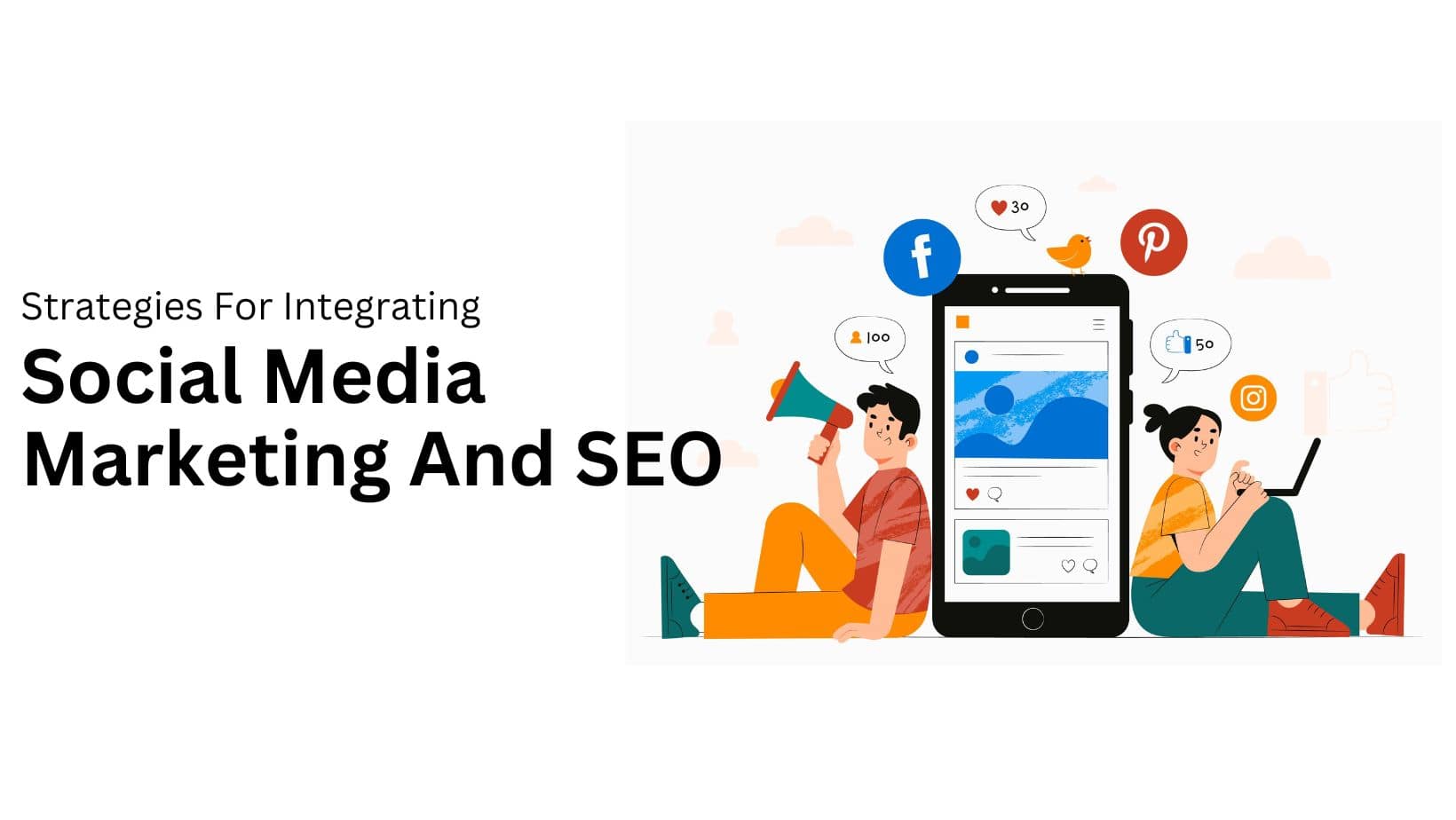
Optimize Social Profiles For Search
Your social media profiles are essentially an extension of your website. Ensure that your profiles are optimized with relevant keywords, a compelling bio, and a link to your website. This optimization aligns your social media presence with your SEO goals, making it easier for search engines to identify and index your brand’s online footprint.
Create Shareable Content
Crafting content that resonates with your audience and encourages sharing is a powerful strategy. Shareable content not only widens your reach but also stimulates social signals that positively impact SEO. Infographics, videos, and engaging articles are formats that tend to perform well across social media platforms.
Consistent Branding Across Platforms
Maintaining a cohesive brand image across all social media platforms is crucial. Consistent branding reinforces your brand identity and helps users recognize and remember your business. Search engines value uniformity, and a consistent brand presence across various platforms reinforces the credibility of your online entity.
Engage With Your Audience
Social media is not a one-way street. Actively engage with your audience by responding to comments, participating in discussions, and encouraging user-generated content. This not only fosters a sense of community but also generates valuable social signals that contribute to improved SEO.
About Wappex Solutions
At Wappex Solutions, we understand the intricate dynamics of the digital marketing landscape. Our team of experts is dedicated to navigating the ever-changing algorithms and trends to ensure your brand stands out in the online realm. Through strategic social media marketing and SEO integration, we empower businesses to enhance their visibility, engage their audience, and achieve sustainable growth.
Contact us today for a holistic digital marketing approach that goes beyond boundaries and unlocks the full potential of your online presence.
Enhance Engagement with Effective Social Media Marketing Solutions
Social Media Marketing: What it is and How to Build your Strategy
Welcome to Effective ‘Social Media Marketing Solutions.’ In the fast-paced digital landscape of 2024, mastering social media marketing is crucial for business success. This article guides you through key strategies, from goal setting and platform selection to content creation and future-proofing. Explore practical insights, valuable tips, and collaboration opportunities to elevate your social media presence. Let’s dive into the essentials and unlock the potential of your brand in the dynamic world of social media marketing.

Understanding Social Media Marketing
In the dynamic landscape of digital communication, social media marketing has become a cornerstone for businesses aiming to thrive in the online realm. This section provides an overview of what social media marketing is and lays the groundwork for a successful strategy.
What is Social Media Marketing?
Social media marketing involves utilizing various social media platforms to connect with your audience, build brand awareness, and drive business goals. It goes beyond mere presence, focusing on strategic planning, engaging content creation, and fostering meaningful interactions.
Benefits of Social Media Marketing
Understanding the advantages of social media marketing is pivotal for harnessing its potential. Key benefits include:
- Increased Brand Exposure: Reach a wider audience and enhance brand visibility.
- Direct Audience Interaction: Establish a direct line of communication with your audience.
- Cost-Effective Advertising: Compared to traditional marketing channels, social media offers cost-effective advertising options.
- Real-time Feedback: Gain immediate feedback and insights from your audience.
- Data-Driven Decision Making: Utilize analytics to make informed decisions and refine your strategy.
The Essentials of a Successful Social Media Marketing Strategy
Success in social media marketing hinges on a well-defined strategy. Key essentials include:
- Clear Objectives: Set specific, measurable, and achievable goals.
- Target Audience Understanding: Conduct thorough research to identify and understand your target audience.
- Platform Selection: Choose platforms that align with your audience and business objectives.
- Engaging Content: Craft content that resonates with your audience and encourages interaction.
- Consistency: Maintain a consistent brand voice and posting schedule.
Creating Your Social Media Marketing Plan
A structured plan is the roadmap to success. Outline your goals, target audience, chosen platforms, and content strategy. This plan will serve as a guide for your day-to-day activities.
Related Search: Unlocking Business Success: The Comprehensive Guide to Digital Marketing Services
Social Media Marketing Tips
Before delving deeper into specific strategies, consider these general tips for effective social media marketing:
- Authenticity Matters: Be genuine and authentic in your interactions and content.
- Visual Appeal: Visual content often performs well; invest in high-quality images and videos.
- Consistent Branding: Ensure a cohesive brand image across all platforms.
- Stay Updated: Adapt to evolving trends and algorithm changes.
With a solid understanding of social media marketing and its foundational principles, you are now ready to embark on the journey of crafting an effective strategy. Next, we’ll explore the crucial aspect of setting goals that align with your business vision.
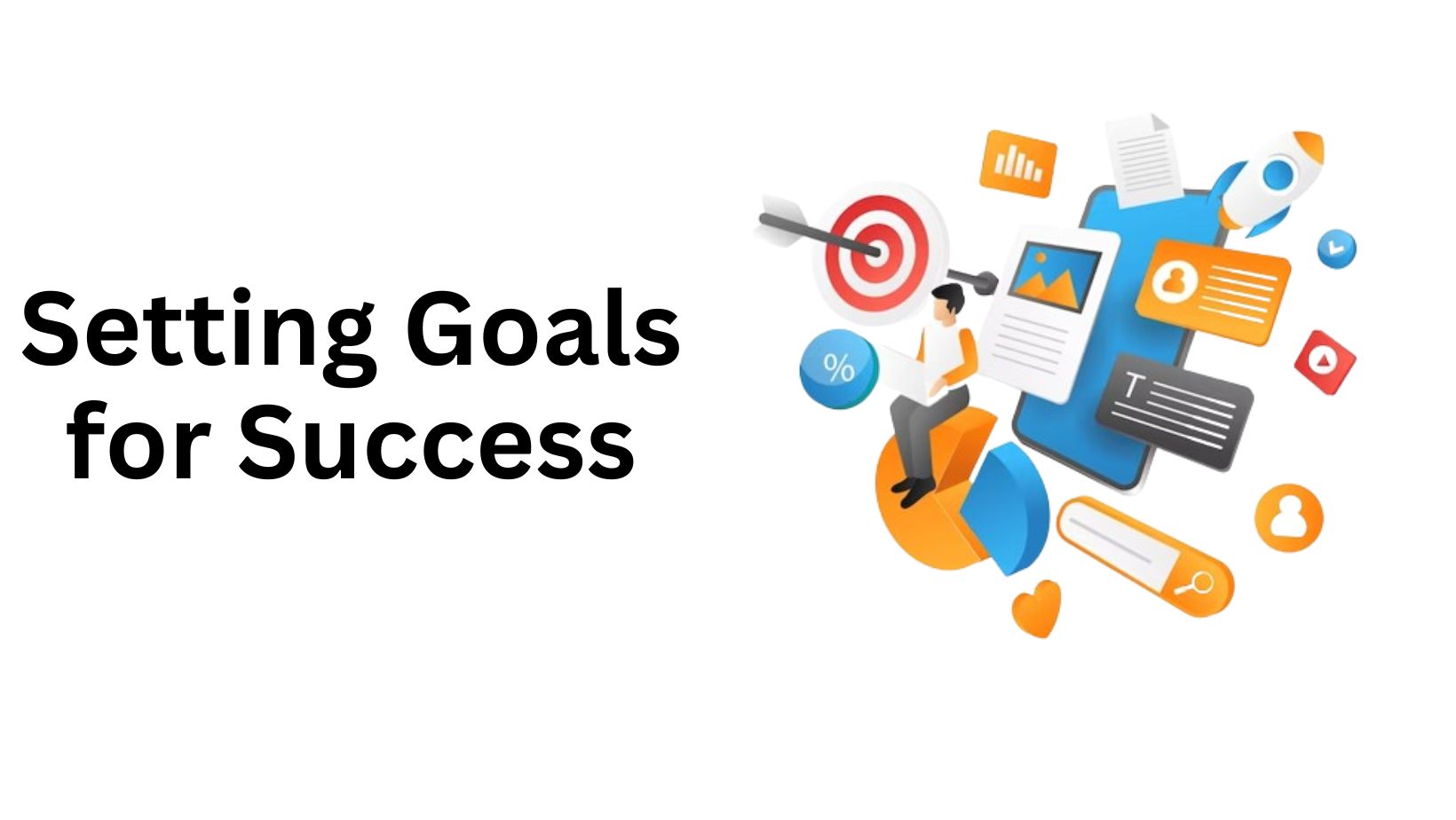
Setting Goals for Success
In the realm of social media marketing, setting clear and measurable goals is the compass that guides your efforts. Before diving into the vast sea of platforms and content creation, take the time to define your objectives. Here’s a breakdown to help you establish goals that align with your business vision:
Define Your Social Media Goals
Begin by understanding what you aim to achieve. Common social media goals include:
Increase Brand Awareness: Boost your brand’s visibility and recognition in the digital space. Leverage platforms to showcase your identity, values, and unique selling propositions.
Generate Leads and Sales: Drive conversions by strategically promoting products or services. Implement targeted campaigns to capture the interest of potential customers.
Grow Your Brand’s Audience: Expand your follower base organically. Engage with your audience, encourage shares, and foster a community around your brand.
Provide Holistic Customer Care: Utilize social media as a customer service channel. Address queries promptly, resolve issues, and build a reputation for excellent customer support.
Drive Traffic to Your Site: Illustrate the return on investment (ROI) of your social efforts by directing traffic to your website. Measure clicks, conversions, and overall website engagement.
Research Your Target Audience
Understanding your audience is paramount. Conduct thorough research to identify the demographics, interests, and behaviors of your target customers. This insight will inform your platform selection and content strategy.
Different Platforms, Different Audiences: Recognize that each social media platform attracts a unique demographic. Tailor your approach to resonate with the audience prevalent on each platform.
Platforms:
- X:
- Facebook:
- Instagram:
- Threads:
- LinkedIn:
- Pinterest:
- YouTube:
- TikTok:
Picking Networks for Your Strategy: Based on your research, select platforms that align with your target audience and business objectives.
In summary, goal setting is the foundational step in crafting a successful social media strategy. By clearly defining your objectives and understanding your audience, you lay the groundwork for impactful and targeted marketing efforts. Now, let’s move on to the next crucial aspect: Establishing your most important metrics and Key Performance Indicators (KPIs).
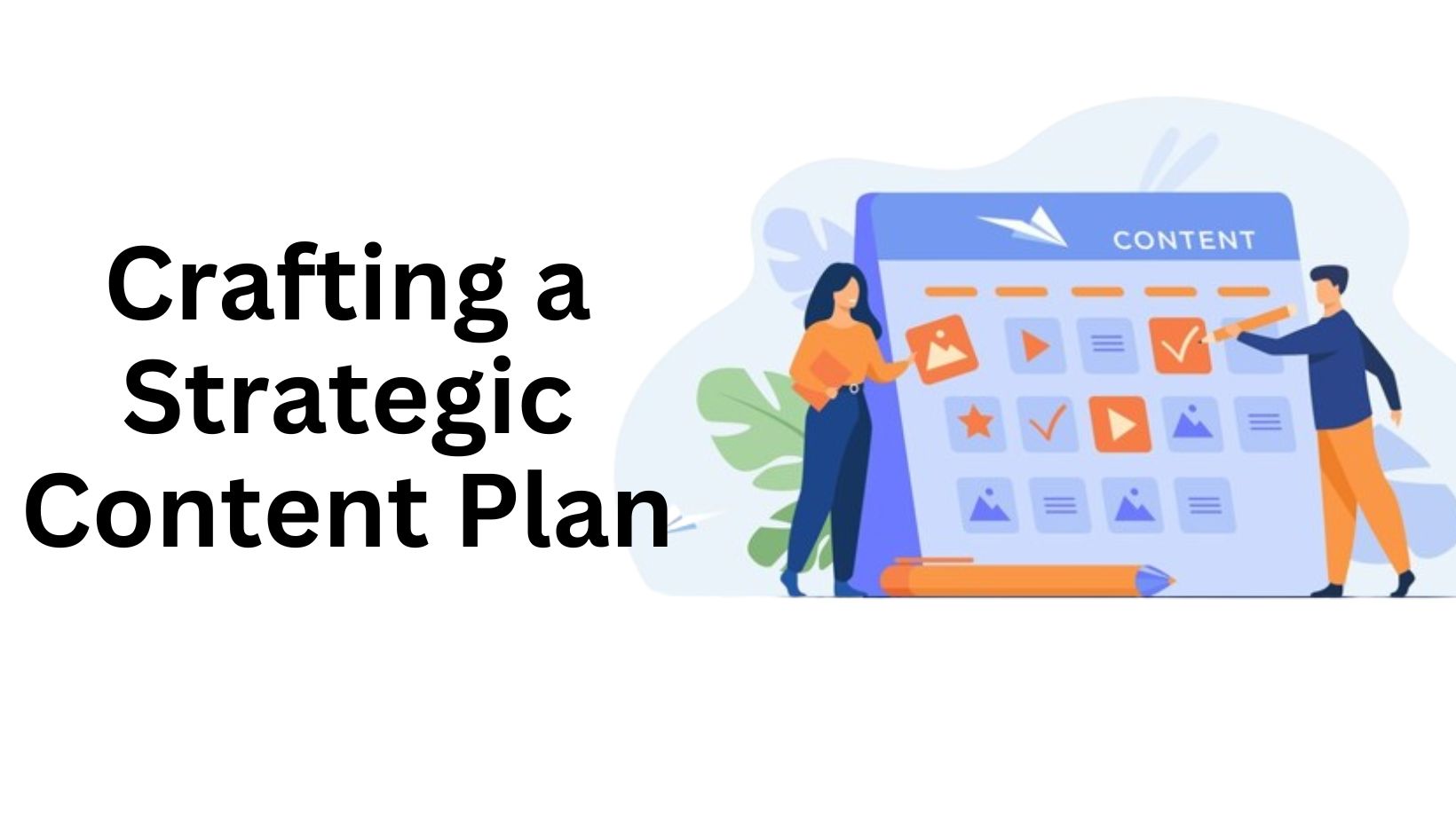
Crafting a Strategic Content Plan
Once you’ve set clear goals and chosen the right platforms, the next critical step in effective social media marketing is creating a strategic content plan. Compelling and relevant content is the driving force behind engaging your audience and achieving your objectives.
Defining Your Content Strategy
A well-defined content strategy ensures that your messaging aligns with your brand and resonates with your audience. Consider the following elements when crafting your content strategy:
- Brand Voice: Develop a consistent brand voice that reflects your company’s personality and values. Whether it’s playful, informative, or authoritative, maintaining a unified voice enhances brand recognition.
- Content Themes: Establish themes that align with your brand and resonate with your target audience. Consistency in themes creates a cohesive and recognizable presence across platforms.
Find Your Brand Voice
Your brand voice is the personality that comes through in your content. It should be tailored to your audience and industry. For example:
- Playful: Suitable for brands targeting a younger demographic or those in creative industries.
- Informative: Ideal for educational content, industry insights, or thought leadership.
- Authoritative: Suited for businesses looking to establish themselves as industry leaders.
The Importance of Sticking to Content Themes
Consistency is key in social media marketing. Sticking to content themes helps in:
- Brand Recognition: Users easily identify your brand through consistent themes.
- Audience Expectations: Establishing themes helps set expectations for your audience, creating anticipation for your content.
Content Ideas for Social Media Marketing in 2024
In the rapidly evolving landscape of social media, staying ahead with fresh and engaging content ideas is essential. Consider incorporating the following:
- Stories and Time-Sensitive Posts: Leverage the Stories feature or create time-sensitive posts to encourage urgency and boost engagement.
- Short-Form Video: With the rise of platforms like TikTok and Instagram Reels, short-form videos are a powerful way to convey messages quickly.
- Posts That Showcase Your Brand’s Uniqueness and Human Side: Humanize your brand by sharing behind-the-scenes content, employee stories, or customer testimonials.
- Collaborate with Creators: Partnering with influencers or creators can extend your reach and bring a new perspective to your content.
- Pro-tip: Conduct a Competitive Analysis: Stay competitive by analyzing what others in your industry are doing. Identify gaps and opportunities to make your content stand out.
Make Your Social Presence as Timely as Possible
Relevance and timeliness are crucial in social media marketing. Ensure your content calendar is aligned with current trends, events, and relevant holidays.
Assemble Your Content Calendar
A content calendar is a roadmap for your social media activities. It helps in:
- Consistency: Plan your posts in advance to maintain a consistent presence.
- Strategic Timing: Schedule posts at optimal times to reach your audience when they are most active.
Post at the Best Times to Engage
Understanding your audience’s online behavior is key. Utilize analytics tools to identify the peak times when your audience is most active and schedule your posts accordingly.
Respond to Customer Questions and Shout-Outs ASAP
Engage with your audience promptly. Respond to comments, messages, and mentions swiftly. This not only builds a positive brand image but also encourages ongoing interactions.
With a well-crafted content plan, you lay the groundwork for a compelling social media presence. The next steps involve optimizing timing and engagement, evaluating and improving your strategy, and collaborating across departments. Stay tuned as we delve deeper into these crucial aspects to enhance the effectiveness of your social media marketing efforts.

Optimizing Timing and Engagement
Evaluate and Improve Your Social Media Strategy
Continuous improvement is essential in the ever-evolving landscape of social media. Regularly assess your strategy using the following steps:
- Analytics Review: Utilize platform analytics to measure the performance of your content. Identify top-performing posts and understand audience engagement metrics.
- A/B Testing: Experiment with different content types, posting times, and messaging strategies. Use A/B testing to determine what resonates best with your audience.
- Stay Informed: Keep abreast of industry trends, algorithm changes, and emerging platforms. Adapt your strategy to align with the evolving landscape.
Bring Other Departments into the Mix
Collaboration across departments enhances the impact of your social media strategy. Consider involving the following departments:
Human Resources:
Leverage social media for recruitment, employer branding, and employee engagement. Showcase your company culture and highlight career opportunities.
Sales:
Collaborate with the sales team to align social media efforts with sales goals. Share product updates, promotions, and customer testimonials to support the sales process.
Product and Merchandising:
Coordinate with product teams to showcase new releases, highlight features, and gather customer feedback. Social media can be a powerful tool for product promotion.
Customer Care:
Integrate social media into your customer care strategy. Respond to inquiries, address concerns, and use feedback to improve your products or services.
Is Your Social Media Marketing Strategy Future-Proof?
In a rapidly evolving digital landscape, it’s crucial to assess the future-proofing of your social media strategy. Consider the following aspects:
Featured in Social Media Marketing:
Keep an eye on trends featured in social media marketing. Adapt your strategy to align with emerging best practices and innovations.
Additional Resources for Social Media Marketing:
Explore additional resources to stay updated on the latest tools, techniques, and industry insights. Continuous learning is key to staying ahead in the dynamic world of social media.
With a focus on timing, engagement, and ongoing improvement, you can optimize the effectiveness of your social media strategy. Stay tuned for the next section, where we explore the crucial aspect of future-proofing your social media marketing efforts.

Future-Proofing Your Social Media Strategy
As the digital landscape continues to evolve, future-proofing your social media strategy is essential for staying ahead and maintaining a competitive edge. In this section, we’ll delve into strategies to ensure your approach remains relevant and effective in the face of emerging trends and changes.
Featured in Social Media Marketing
Staying abreast of trends and being featured in social media marketing discussions is vital. Explore platforms, webinars, and industry publications that highlight current trends and best practices. Adapting to innovations showcased in these spaces can keep your strategy aligned with the latest industry standards.
Evaluate Emerging Platforms
Keep an eye on emerging social media platforms that align with your target audience. While established platforms offer stability, emerging ones may present untapped opportunities. Early adoption can give you a competitive advantage and position your brand as an innovator in your industry.
Adapt to Algorithm Changes
Social media algorithms are dynamic and can significantly impact content visibility. Regularly monitor algorithm changes on platforms like Facebook, Instagram, and Twitter. Adapt your content strategy to align with these changes and maintain optimal reach and engagement.
Embrace New Content Formats
The popularity of content formats evolves over time. Stay attuned to emerging trends, such as augmented reality (AR), virtual reality (VR), and interactive content. Experimenting with and incorporating these formats into your strategy can captivate your audience and differentiate your brand.
Leverage Artificial Intelligence (AI) and Automation
Harness the power of AI and automation tools to streamline your social media efforts. These technologies can aid in content creation, scheduling, and performance analysis. Integrating AI-driven insights into your strategy enhances efficiency and allows for more informed decision-making.
Mobile Optimization
Given the widespread use of mobile devices, optimizing your content and strategy for mobile users is non-negotiable. Ensure that your visuals, videos, and interactive content are mobile-friendly. Additionally, consider mobile-specific features offered by platforms to enhance the user experience.
Stay Data-Driven
Emphasize a data-driven approach by regularly analyzing performance metrics. Leverage analytics tools to gain insights into audience behavior, content engagement, and conversion rates. Use this data to refine your strategy, focusing on what resonates most with your audience.
Cybersecurity Considerations
As the digital landscape evolves, cybersecurity becomes increasingly important. Protect your brand and audience by staying informed about potential risks and implementing robust cybersecurity measures. Safeguarding customer data and ensuring secure online interactions are integral aspects of a future-proof strategy.
Agile Strategy Implementation
Maintain agility in your approach. The ability to swiftly adapt to changes in the digital landscape is a valuable asset. Be open to adjusting your strategy based on feedback, industry shifts, and technological advancements.

Conclusion and Call to Action
In the dynamic world of social media marketing, we’ve navigated through key strategies and resources to empower your brand’s online presence. As we conclude, let’s recap the essential insights and provide a clear call to action for maximizing your social media marketing effectiveness.
Key Takeaways:
- Clear Goals: Establish specific, measurable goals aligned with your business vision.
- Strategic Platform Selection: Choose platforms based on audience demographics and business objectives.
- Compelling Content Strategy: Develop a consistent brand voice and align content with themes that resonate.
- Optimal Timing and Engagement: Assemble a content calendar, post at peak times, and engage with your audience promptly.
- Continuous Improvement: Regularly evaluate your strategy, adapt to algorithm changes, and embrace emerging trends.
- Collaboration Across Departments: Integrate social media efforts with HR, sales, product, and customer care teams.
- Future-Proofing: Stay informed, experiment with new content formats, and remain agile in strategy implementation.
Your Social Media Marketing Journey Continues:
The insights shared in this article serve as a foundation for your social media marketing endeavors. However, the landscape is ever-evolving, and success demands continuous adaptation.
Call to Action:
- Implement Insights: Put the strategies discussed into action. Set clear goals, refine your content strategy, and optimize timing for engagement.
- Explore Additional Resources: Enroll in relevant social media marketing courses, consider external services, and leverage tools for performance evaluation.
- Stay Informed: Regularly check industry reports, attend webinars, and follow thought leaders to stay abreast of emerging trends and best practices.
- Embrace Innovation: Experiment with new content formats, keep an eye on emerging platforms, and leverage technologies like AI for efficiency.
- Collaborate Internally: Foster collaboration with HR, sales, product, and customer care teams to amplify the impact of your social media efforts.
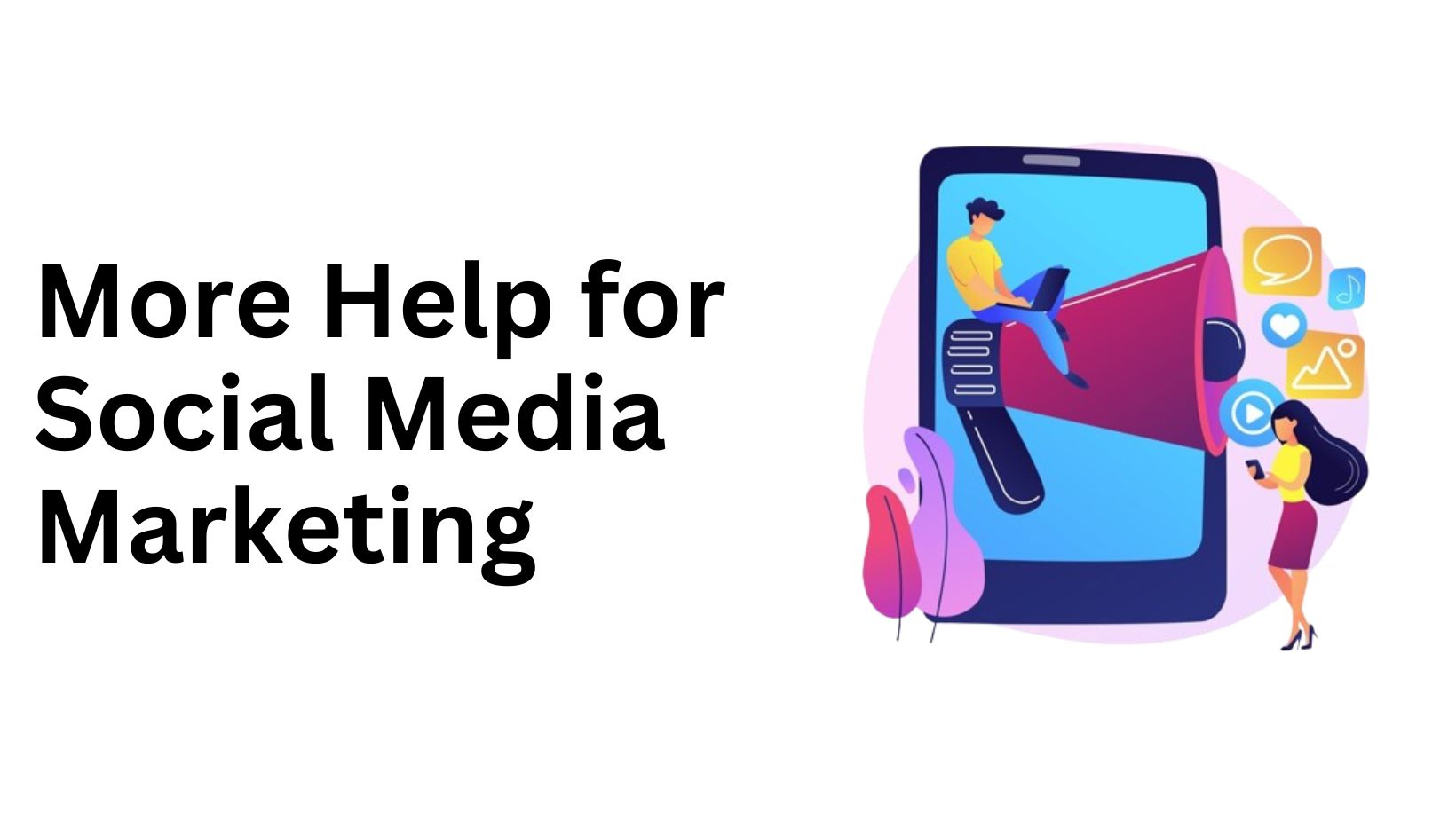
More Help for Social Media Marketing
To further enhance your social media marketing prowess, this section explores a variety of additional resources. These resources encompass courses, tools, and platforms designed to keep you well-equipped in the ever-evolving landscape of social media.
Social Media Marketing Courses
Investing time in specialized courses can provide invaluable insights and skills. Here are a few courses recommended for refining your social media marketing expertise:
Social Ads 101 [PPC University]
This course offers a deep dive into the fundamentals of social media advertising. Explore strategies for platforms like Facebook, Instagram, and Twitter, covering ad creation, targeting techniques, and performance analysis.
Facebook Ads 101 [PPC University]
Focus specifically on mastering Facebook Ads with this course. From understanding different ad types to utilizing advanced targeting options, you’ll gain comprehensive knowledge to optimize your advertising efforts on the world’s largest social media platform.
Social Media Marketing Services
Consider external services to augment your social media marketing efforts. These services often provide strategic planning, content creation, and performance analysis. While internal teams handle day-to-day activities, external expertise can bring fresh perspectives and specialized skills.
Start Prioritizing Your Social Media Marketing Strategy
Effective prioritization is crucial for managing social media tasks efficiently. The “Free Google Ads Performance Grader” is a tool designed to assess and prioritize your Google Ads account. It evaluates performance, highlights areas for improvement, and helps you prioritize tasks for optimal results.
Marketing Tips
Staying informed about the latest marketing tips can offer actionable insights. Regularly explore reputable marketing blogs, industry publications, and thought leader content for practical advice. Incorporate relevant tips into your strategy to refine your approach continually.
Social Media Marketing Statistics
Knowledge of current social media marketing statistics is vital for informed decision-making. Stay updated on industry reports and statistics to understand trends, user behavior, and platform preferences. This data-driven approach enhances your ability to tailor your strategy to current market dynamics.
Free Google Ads Performance Grader
Assessing the performance of your Google Ads is integral to optimizing your online advertising efforts. The Free Google Ads Performance Grader provides a comprehensive analysis of your Google Ads account, offering insights into areas of improvement and opportunities for enhancing performance.
Conclusion and Call to Action
Exploring these additional resources can significantly enrich your social media marketing toolkit. Whether through courses, external services, prioritization tools, or staying informed with tips and statistics, incorporating these resources into your strategy enhances your ability to navigate the dynamic landscape of social media marketing.
In summary, successful social media marketing for businesses requires a strategic approach encompassing fundamental principles, continuous learning, and diverse resources. By understanding key essentials, exploring additional tools and services, and maintaining adaptability, businesses can thrive in the dynamic digital landscape. Embracing a strategic mindset empowers businesses to connect, engage, and achieve lasting success on social media.
Unveiling the Custom WordPress Website Development Process: A Comprehensive Guide
Step-by-Step Guide to Custom WordPress Website Development
Introduction
In the ever-evolving landscape of the web, creating a Custom WordPress Website Development demands a meticulous process to ensure success. Whether you’re envisioning a sleek small business site or a comprehensive overhaul with a myriad of products, following a proven website development process is key to achieving an efficient, user-friendly, and search-optimized website.

Step 1: Information Gathering and Planning
Project Summary
To embark on a successful website development journey, the initial step involves a thorough information-gathering process. A web agency representative delves into your project’s specifics, including the company’s background, the business environment, staff details, and the unique values the company or its products offer to the target audience.
Goals
As a customer, defining two or three specific, measurable goals for the site is crucial. Clear goals empower the development team to focus on features that have the most impact, propelling the company forward.
Target Audiences
Identifying your ideal customer or target segment is vital. A professional web development team considers factors like age, gender, location, and interests to tailor the design style for your site.
Messages
Crafting both marketing and brand messages is essential. Marketing messages attract and motivate your audience, while brand messages differentiate your company from competitors.
Competition
Analyzing competitors’ websites helps in strategic design decisions. By understanding their marketing messages, usability, calls to action, and visual branding, web designers can create a superior user experience.
Content
Understanding what information potential customers seek ensures your site delivers relevant content. Consider ease of access to features or characteristics of products or services.
Site Architecture
Creating a sitemap and wireframes helps define the website’s navigation and content hierarchy. Additionally, selecting the right technology stack, including programming language, frameworks, CMS, and plugins, is crucial.
Step 2: Design
In this phase, web designers utilize the gathered information to shape the site’s look and feel. Tools like Figma aid in visualizing the design, and considering the target audience is paramount. Aligning the design with the company’s brand elements, such as the logo and colors, reinforces the brand’s identity.
Step 3: The Website Coding
Website developers bring the design to life by coding a custom WordPress theme tailored to the approved design. This step involves creating the website’s functionality, admin panel, UI animations, and ensuring mobile responsiveness for diverse user devices.
Step 4: Testing
The testing stage is crucial to fine-tune details and ensure the website functions flawlessly. QA engineers meticulously review and test features like forms, buttons, shopping carts, and email software. Cross-browser and mobile device testing guarantee a seamless user experience.
Step 5: Delivery

Once the development team receives final approval, the website is delivered. This includes migrating files to the customer’s server, updating plugins, basic SEO configuration, setting redirects, performing website backups, adding web tracking scripts, providing CMS and admin panel training, and ensuring overall functionality.
Conclusions
Launching a website is just the beginning. To sustain success, consider the dynamic online landscape. Continuously optimize your site for search engines, engage in content marketing, run online advertising campaigns, manage your online reputation, and analyze user engagement reports.
To ensure long-term success, remember that the website development project extends beyond the launch date. Proven web specialists and professionals can assist in keeping your website competitive, updated, and secure without incurring additional costs.
In a dynamic online world, your website is a powerful tool. Stay ahead by implementing effective digital marketing strategies, and if you’re looking for comprehensive website development services, Wappex Solutions is your trusted partner.
Related Search: Website Speed And Its Role In User-Friendly Design
Unleashing the Power of AI in Engaging Digital Content
Making Digital Content more Engaging with AI
Discover the transformative potential of AI in crafting engaging digital experiences. Explore the role of AI in content creation, digital advertising, and customer interaction. From chatbots to ethical considerations, this comprehensive guide unlocks the future trends and best practices in integrating AI into your digital marketing strategy. Elevate your SEO efforts and master the art of creating impactful digital content with the power of AI. If you’re seeking insights on AI’s role in shaping the future of marketing, optimizing budgets, and navigating common misconceptions, this guide has you covered. Dive into the world of AI and redefine your digital marketing approach.

Digital Marketing And AI
In the ever-evolving landscape of digital marketing, AI emerges as a game-changer, reshaping how businesses connect with their audience. This article explores the profound impact of Artificial Intelligence on digital content creation, marketing, and the challenges and opportunities it presents.
Content Generation And Curation
Understanding AI in Content Creation
AI in content creation goes beyond mere automation; it’s about elevating creativity and engagement. With advancements in Natural Language Processing (NLP) and machine learning, AI-based writing tools are revolutionizing the way content is generated.
Benefits of AI in Content Creation
Improved Efficiency
One of the standout benefits of AI in content creation is the unprecedented efficiency it brings to the table. AI-driven tools can analyze vast amounts of data, identify trends, and generate content at a pace unmatched by human counterparts.
Enhanced Personalization
Personalization is the cornerstone of effective digital marketing. AI enables hyper-personalized content tailored to individual preferences, behaviors, and demographics, ensuring a more meaningful and impactful user experience.
Consistency in Quality
Maintaining consistency in content quality across diverse platforms can be challenging. AI addresses this by adhering to predefined style guidelines, ensuring uniformity in tone, voice, and messaging.
Multilingual Content Creation
Breaking down language barriers, AI facilitates seamless multilingual content creation. This not only expands the audience reach but also caters to the diverse linguistic preferences of global consumers.
Integration of AI Tools in Content Creation
The synergy between human creativity and AI efficiency is the sweet spot for optimal content creation. Integrating AI-based image and video creation tools empowers content creators to produce visually stunning and compelling multimedia content.
Improved Digital Advertising With AI
As digital advertising becomes increasingly competitive, AI injects a new level of precision and effectiveness. Ad targeting, content optimization, and performance analytics are areas where AI-driven solutions outshine traditional methods.
Chatbots
The integration of AI-powered chatbots in customer interactions is a testament to the evolving role of AI in fostering real-time engagement. Chatbots not only streamline customer service but also contribute to a more personalized and responsive user experience.
Related Search: How Digital Marketing Services Can Help Your Business Succeed
The Future of Content Creation: How AI Tools are Changing the Game
Increasing Popularity of AI-based Tools
The popularity of AI-based tools in content creation is on the rise, and for good reason. Businesses that harness the power of AI witness a significant competitive edge in terms of efficiency, creativity, and audience engagement.
Role of AI in the Creation of Social Media Content
Social media, being a dynamic and fast-paced platform, benefits immensely from AI’s ability to analyze user behavior, trends, and preferences. This facilitates the creation of content that resonates with the target audience, driving higher engagement.
AI Boosting Marketer’s Content Creation Strategies
Marketers are increasingly relying on AI to refine their content creation strategies. From ideation to execution, AI provides valuable insights, enabling marketers to make data-driven decisions for more effective campaigns.
E-Commerce
In the realm of e-commerce, where visual appeal and persuasive content are paramount, AI proves to be a valuable ally. Product recommendations, personalized shopping experiences, and dynamic pricing strategies powered by AI enhance the overall customer journey.

Challenges of AI in Content Creation
Quality Control
While AI streamlines content creation, maintaining quality standards remains a challenge. Striking the right balance between automation and human oversight is crucial to ensure content resonates with the intended audience.
Overreliance on AI
Overreliance on AI without a human touch can lead to generic and uninspiring content. Content creators must leverage AI as a tool for enhancement rather than a replacement for creativity and intuition.
Ethical Concerns
The ethical implications of AI in content creation cannot be ignored. From bias in algorithms to the potential misuse of AI-generated content, addressing ethical concerns is imperative for responsible AI adoption.
Summary
In conclusion, the synergy of AI and digital content creation is reshaping the landscape of digital marketing. From enhanced efficiency and personalization to addressing challenges and ethical considerations, businesses must navigate this transformative journey with a strategic and responsible approach.
Want to scale your SEO with AI?
Unlock the potential of AI in your SEO strategy. Explore how AI-driven tools can elevate your website’s visibility, enhance keyword targeting, and optimize content for search engine algorithms.
Unlocking the Potential of Digital Marketing AI
The Basics of Artificial Intelligence in Marketing
Digital marketing AI goes beyond automation—it’s a strategic enabler. Understanding the basics of AI in marketing sets the stage for leveraging its capabilities effectively.
The Role of AI in Digital Marketing
AI plays a pivotal role in digital marketing by analyzing vast datasets, identifying patterns, and enabling data-driven decision-making. From customer segmentation to personalized content recommendations, AI enhances every aspect of the marketing funnel.
The Benefits of Integrating AI into Your Digital Marketing Strategy
AI and Data-Driven Marketing Decisions
Harnessing AI for data-driven marketing decisions empowers businesses to make informed choices. From identifying target audiences to optimizing ad placements, AI enhances the efficiency and effectiveness of marketing strategies.
Overcoming Challenges in Implementing Digital Marketing AI
Addressing Common Misconceptions About AI in Marketing
Misconceptions about AI in marketing often hinder adoption. Addressing common myths, such as job replacement fears, fosters a clearer understanding of AI’s role as a collaborative tool rather than a threat.
Navigating the Ethical Considerations of AI Use
Ethical considerations are paramount in the AI-driven marketing landscape. Transparent practices, user privacy protection, and responsible AI development ensure ethical marketing strategies.
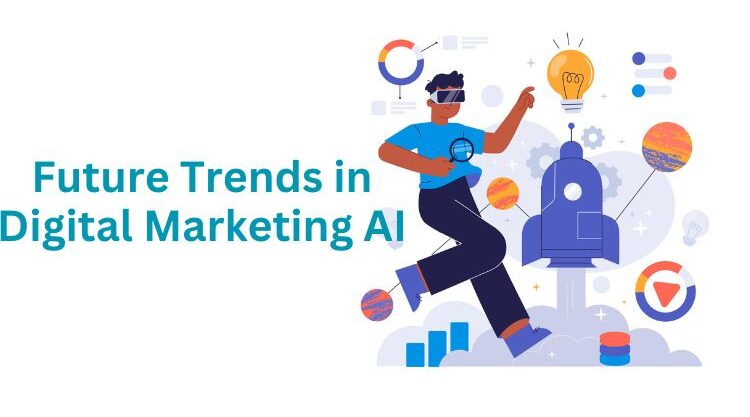
Future Trends in Digital Marketing AI
The Rise of AI-Powered Chatbots in Marketing
AI-powered chatbots are revolutionizing customer interactions. They provide instant responses, personalized recommendations, and contribute to a seamless customer journey.
Predictive Analytics and AI: The Future of Marketing
The integration of predictive analytics and AI anticipates customer behavior, enabling marketers to proactively tailor campaigns. This predictive approach enhances targeting precision and campaign success rates.
Making the Most of Digital Marketing AI
Best Practices for Integrating AI into Your Marketing Strategy
Implementing AI in digital marketing requires a strategic approach. Best practices include setting clear objectives, integrating AI seamlessly into existing workflows, and continually refining strategies based on AI-driven insights.
Measuring the Success of Your AI Marketing Initiatives
Quantifying the success of AI marketing initiatives involves tracking key performance indicators (KPIs) such as engagement rates, conversion rates, and return on investment. Analytics-driven insights guide ongoing optimization efforts.
How Is AI Used in Digital Marketing?
AI is used in digital marketing for various applications, including personalized content creation, predictive analytics, chatbots, and automated ad optimization.
What is An Example Of Artificial Intelligence in Digital Marketing?
An example of AI in digital marketing is the use of machine learning algorithms to analyze user behavior and preferences, enabling personalized content recommendations and targeted advertising.
Is Artificial Intelligence Part of Digital Marketing?
Absolutely. AI is an integral part of digital marketing, enhancing efficiency, personalization, and decision-making across the entire marketing funnel.
What is The Best AI Tool For Digital Marketing?
Choosing the best AI tool depends on specific business needs. Popular options include IBM Watson, Google AI, and HubSpot, each offering unique features for different aspects of digital marketing.
How is AI Changing The Face Of Digital Marketing?
AI is revolutionizing digital marketing by automating tasks, improving targeting precision, and enabling data-driven decision-making. This transformative impact positions businesses for success in the digital age.
Creating a Digital Marketing Budget: Tips and Strategies
Crafting an effective digital marketing budget involves a thorough understanding of AI’s role. Allocate resources strategically, considering AI tools, personnel training, and ongoing optimization efforts to maximize ROI.
About Wappex Solutions
Wappex Solutions is a digital marketing agency in Edmonton. We have a team of experts who work hard to provide top-notch services. We offer various services like digital advertising, building websites, SEO, and managing social media. Our goal is to make every project successful with our resources, passion, and dedication. Discover more about Wappex Solutions and our services.
Unlocking Business Success: The Comprehensive Guide to Digital Marketing Services
How Digital Marketing Services Can Help Your Business Succeed
Introduction:
In today’s fast-paced digital era, small businesses are increasingly turning to digital marketing services to establish a robust online presence and reach their target audience effectively. Digital marketing encompasses a range of strategies and platforms aimed at promoting products or services through electronic devices. In this blog post, we will delve into the world of digital marketing services, exploring their significance, benefits, and the platforms that small businesses can leverage for success.
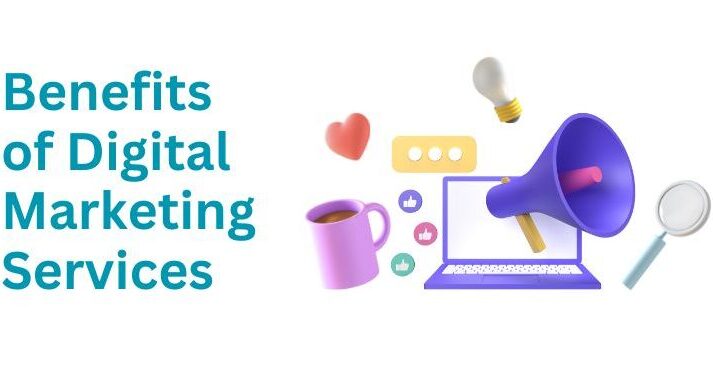
What are Digital Marketing Services
Digital marketing services refer to a set of strategies and activities designed to promote products or services online. These services help businesses build brand awareness, generate leads, and increase sales through various digital channels. For small businesses, these services can be a game-changer in competing with larger counterparts by providing cost-effective and targeted marketing solutions.
Who Needs Digital Marketing Services
Any business, irrespective of its size, can benefit from digital marketing services. Small businesses, in particular, can leverage these services to establish an online presence, attract local customers, and compete in the digital landscape. Whether you are a local store, a service provider, or an e-commerce business, digital marketing can help you connect with your audience and drive business growth.
Which Platform is Best for Digital Marketing
Several digital marketing platforms cater to different business needs. Some of the most effective ones include:
- Search Engine Optimization (SEO): Enhances website visibility on search engines.
- Social Media Marketing (SMM): Engages audiences on platforms like Facebook, Instagram, and Twitter.
- Email Marketing: Targets and nurtures leads through personalized emails.
- Content Marketing: Creates valuable and relevant content to attract and retain customers.
- Pay-Per-Click (PPC) Advertising: Drives targeted traffic through paid ads.
Benefits of Digital Marketing Services:
- Increased Visibility: Boosts online presence and visibility on search engines.
- Targeted Marketing: Reaches specific audiences through precise targeting.
- Cost-Effectiveness: Provides cost-effective advertising options compared to traditional methods.
- Measurable Results: Allows tracking and analyzing of campaign performance in real-time.
- Global Reach: Expands market reach beyond geographical constraints.
What Does Digital Marketing Include
Digital marketing encompasses a range of services, including but not limited to:
- Website Development and Design
- Content Creation and Marketing
- Social Media Management
- Search Engine Optimization (SEO)
- Email Marketing
- Online Advertising (PPC)
- Analytics and Reporting
Digital Marketing Services Agreement
Before embarking on a digital marketing journey, it’s essential to establish a clear agreement. A digital marketing services agreement outlines the scope of services, timelines, payment terms, and other crucial details. It acts as a roadmap, ensuring both the client and the service provider are on the same page.
Digital Marketing Agency Social Media Posts
Digital marketing agencies often use social media platforms to showcase their expertise and connect with their audience. Engaging social media posts can include:
- Case Studies: Highlighting successful campaigns.
- Tips and Tricks: Sharing industry insights.
- Client Testimonials: Building trust with social proof.
- Behind-the-Scenes: Showcasing the agency’s culture and team.
Digital Marketing Solution Services
Digital marketing solutions are tailored strategies to address specific business challenges. These may include:
- Lead Generation Solutions
- Reputation Management Services
- E-commerce Marketing Solutions
- Local SEO Services
- Customized Social Media Campaigns
Digital Marketing Agency Software
To streamline operations and enhance efficiency, digital marketing agencies often use specialized software. These may include tools for:
- Social Media Management
- SEO Analytics
- Email Marketing Automation
- Project Management
- Customer Relationship Management (CRM)
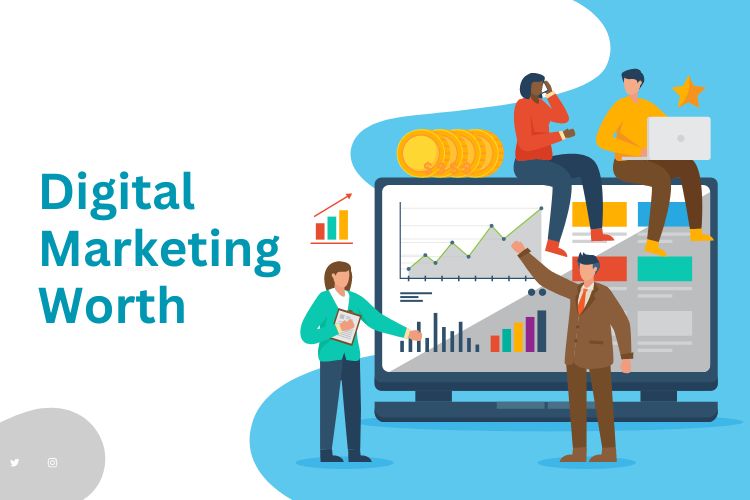
Is Digital Marketing Worth It
Yes, digital marketing is undoubtedly worth the investment. It provides a cost-effective way for businesses to reach their target audience, build brand awareness, and drive measurable results. As the digital landscape continues to evolve, businesses that embrace digital marketing gain a competitive edge in the market.
Does Digital Marketing Work
Yes, digital marketing works when executed strategically. Businesses need to understand their target audience, choose the right platforms, and create compelling content. Regular monitoring and optimization ensure that digital marketing efforts yield positive results over time.
Digital Marketing White Label Services
White label services allow businesses to resell digital marketing services under their brand. This is an excellent option for agencies looking to expand their service offerings without investing in developing the expertise in-house.
What Does a Digital Marketing Agency Do
A digital marketing agency offers a range of services to help businesses achieve their marketing goals. This includes:
- Developing Digital Strategies
- Implementing SEO Tactics
- Managing Social Media Campaigns
- Creating and Optimizing Ads
- Analyzing and Reporting on Campaign Performance
What Is Internet Marketing Services
Internet marketing services encompass all digital marketing activities conducted over the internet. This includes SEO, social media marketing, email marketing, content marketing, and more.
Why Digital Advertising Is Important
Digital advertising is essential because it allows businesses to reach a highly targeted audience. It provides measurable results, allowing advertisers to optimize campaigns for better performance.
Why Is Digital Marketing So Important
Digital marketing is crucial because it aligns with how people consume information today. It offers a personalized and targeted approach, enabling businesses to connect with their audience in a meaningful way.
Get Digital Marketing Agency
For businesses looking to harness the power of digital marketing, partnering with a reputable agency is crucial. Wappex Solutions, available at Wappex Solutions, offers a comprehensive suite of digital marketing services tailored to meet the unique needs of businesses.
Digital Search Marketing Agency
When searching for a digital marketing agency specializing in search marketing, consider Wappex Solutions. Their expertise in SEO and other search marketing strategies can elevate your online presence and drive meaningful results.
Why Does Digital Marketing Matter
Digital marketing matters because it enables businesses to adapt to changing consumer behaviors and stay competitive in the digital landscape. It provides a direct and effective way to connect with the target audience, ultimately driving business success.
Conclusion
In conclusion, digital marketing services are indispensable for small businesses aiming to thrive in the digital age. By embracing platforms like SEO, social media, and email marketing, businesses can enhance their visibility, engage with their audience, and achieve tangible results. As you embark on your digital marketing journey, consider partnering with a trusted agency like Wappex Solutions to unlock the full potential of your online presence.
Key Services You Should Expect From An Online Marketing Agency
A Marketing Agency's Key Services
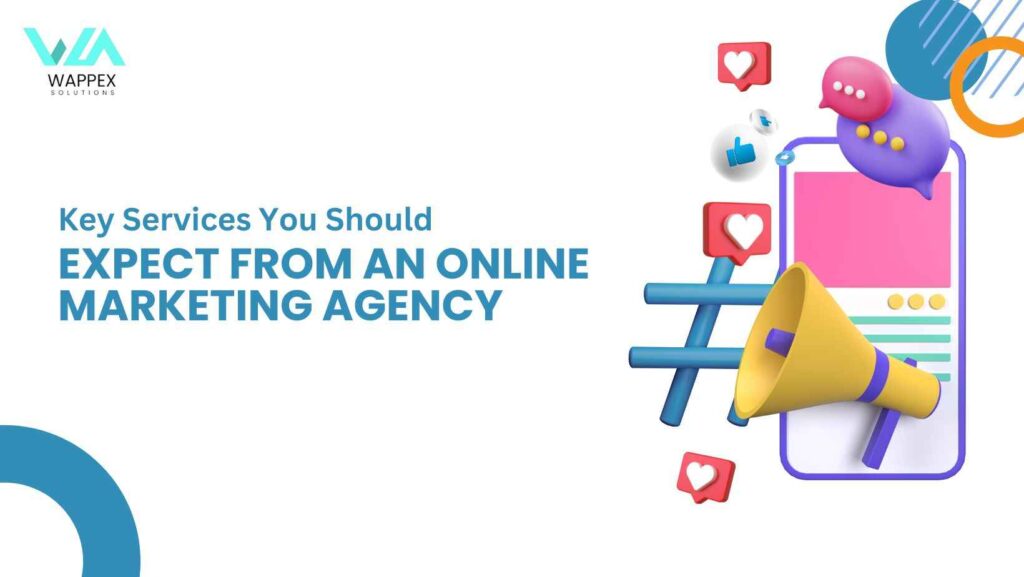
In the dynamic realm of digital marketing, partnering with the right online marketing agency is crucial for the success of your business. At Wappex Solutions, we pride ourselves on delivering a comprehensive suite of services that elevate your online presence and drive tangible results. In this article, we delve into the key services you should expect from a top-notch online marketing agency.
Search Engine Optimization (SEO)
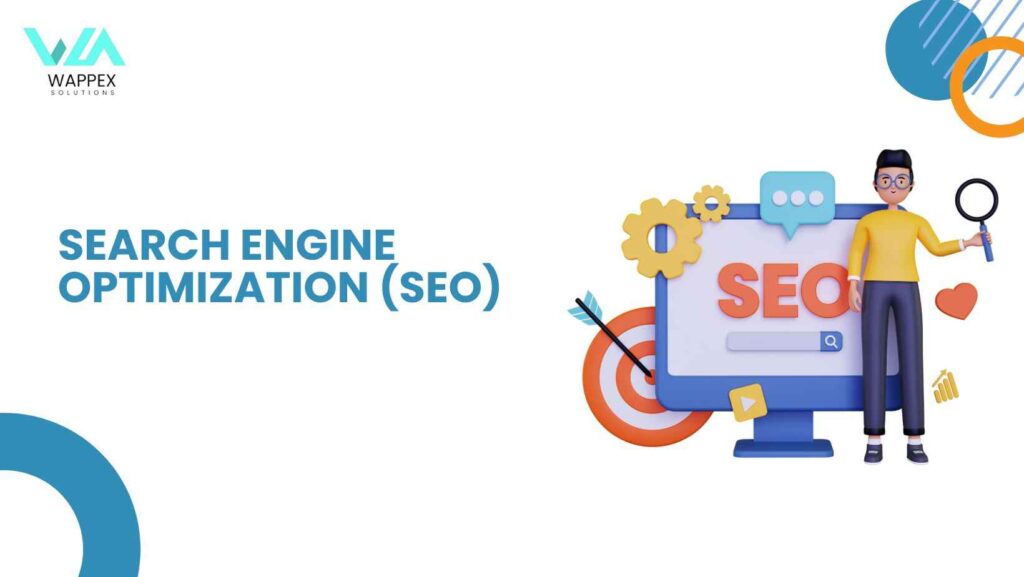
Search Engine Optimization (SEO) is the backbone of any successful online marketing strategy. At Wappex Solutions, we deploy cutting-edge SEO techniques to ensure your website ranks prominently on search engine results pages (SERPs). Our expert team meticulously analyzes algorithms and stays abreast of industry trends to optimize your website for search engines, driving organic traffic and maximizing visibility.
Keyword Research

In the realm of SEO, keyword research is paramount. Our skilled professionals conduct in-depth keyword research to identify high-value terms relevant to your business. This strategic approach ensures that your content aligns seamlessly with user search queries, enhancing your website’s discoverability.
Content Marketing

Blogging And Article Writing
Compelling content is the cornerstone of successful content marketing. Our team of proficient writers at Wappex Solutions crafts engaging blog posts and articles that not only captivate your audience but also align with search engine algorithms. From informative how-to guides to thought-provoking industry insights, we ensure your content establishes your brand as an authority in your niche.
Content Distribution
Creating stellar content is only half the battle. Content distribution is equally vital. We employ a multifaceted approach, leveraging social media, email marketing, and strategic partnerships to amplify the reach of your content. This ensures that your message resonates with a wider audience, driving traffic and enhancing brand awareness.
Social Media Management
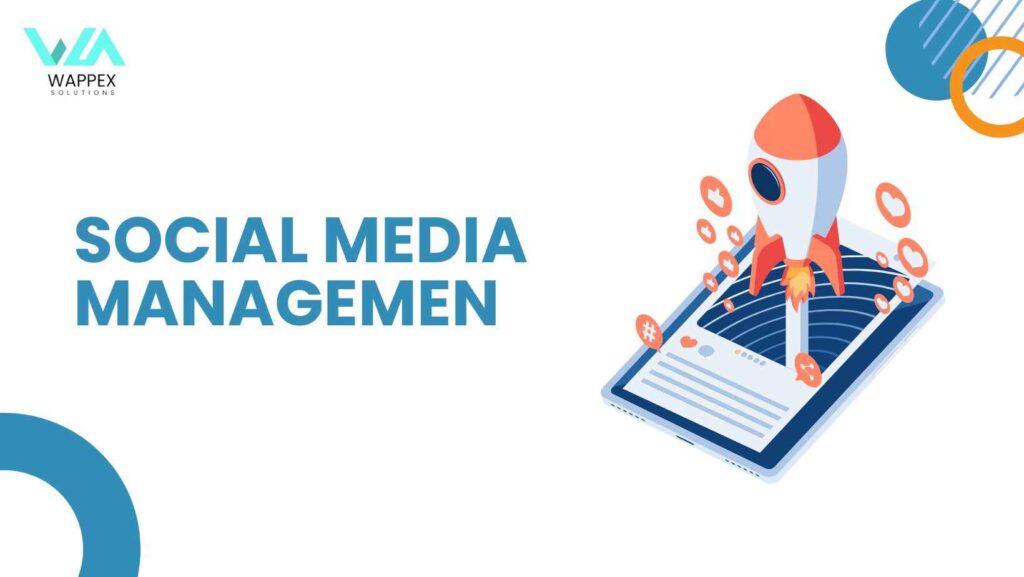
Engaging With Your Audience
In today’s digital landscape, social media management goes beyond posting regular updates. Our team focuses on engaging with your audience authentically. We foster meaningful connections through timely responses, interactive campaigns, and community-building initiatives. This not only enhances your brand’s reputation but also fosters customer loyalty.
Social Media Advertising
Strategic social media advertising is a key element of our services. We tailor campaigns to target specific demographics, ensuring that your ads reach the right audience. This precision not only maximizes the impact of your advertising budget but also generates tangible leads and conversions.
Pay-Per-Click (PPC) Advertising

For instant visibility and targeted traffic, our Pay-Per-Click (PPC) advertising services are unparalleled. We conduct thorough keyword research, create compelling ad copy, and optimize campaigns for maximum ROI. Our meticulous approach ensures that every click contributes to your business objectives.
Web Design And Development

A visually appealing and user-friendly website is the digital face of your business. Our web designand web development team at Wappex Solutions creates responsive, aesthetically pleasing websites that not only capture attention but also provide a seamless user experience. From intuitive navigation to mobile optimization, we prioritize every aspect of website development.
Online Reputation Management
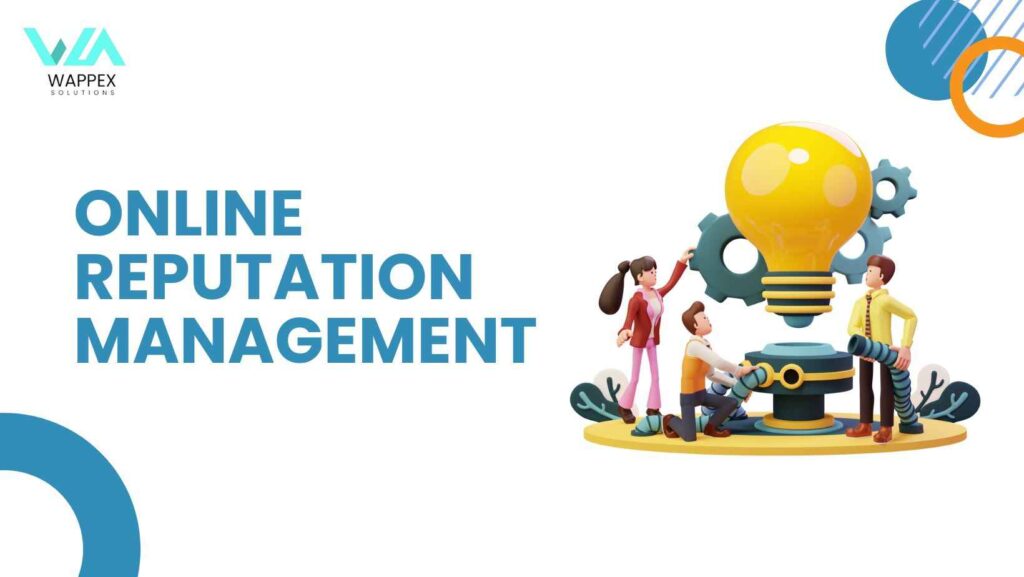
Maintaining a positive online reputation is non-negotiable in today’s interconnected world. Our online reputation management services encompass monitoring brand mentions, addressing customer feedback, and mitigating potential PR crises. We proactively build and safeguard your brand’s image, ensuring that your online presence reflects the values and quality of your business.
Customer Support And Communication
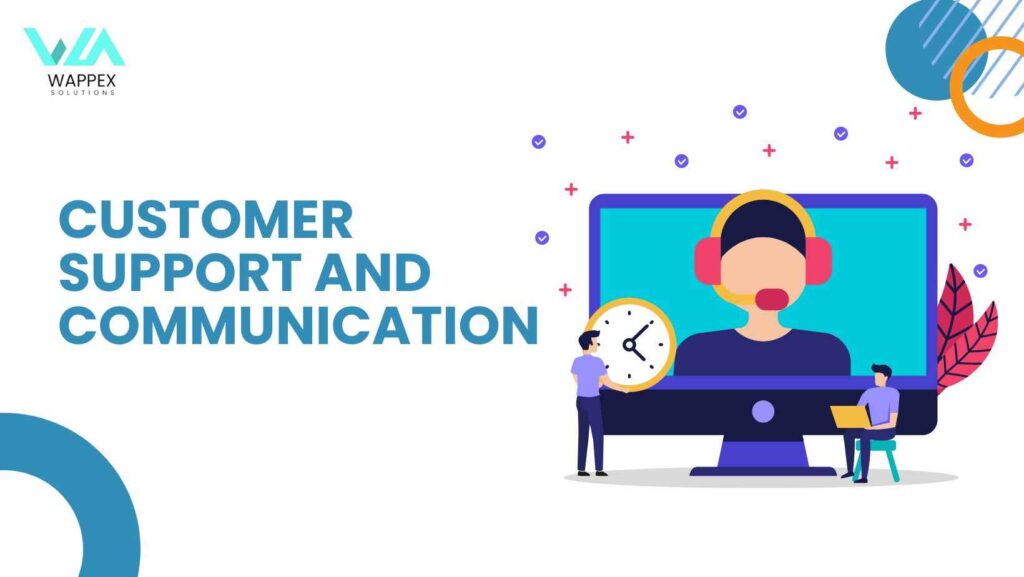
Exceptional customer support and communication are integral components of our service offering. We prioritize transparent communication and swift resolution of customer queries or concerns. This commitment to customer satisfaction not only enhances your brand’s credibility but also fosters long-term relationships with your clientele.
About Us Wappex Solutions, a Marketing Agency
At Wappex Solutions, we are more than a marketing agency; we are your dedicated partner in navigating the dynamic landscape of digital marketing. With a team of seasoned professionals, cutting-edge strategies, and a commitment to excellence, we propel your brand to new heights. Our comprehensive services encompass SEO, content marketing, social media management, PPC advertising, web design, online reputation management, and customer support. Elevate your online presence with Wappex Solutions, where your success is our priority.
Related Search: Digital Presence with Comprehensive Web Development Services
Unveiling Digital Brilliance: Impactful Web Design & Marketing
A powerful Website Design and Marketing Strategy
Introduction:
In the dynamic digital landscape, the importance of effective web design and digital marketing cannot be overstated. Your online presence is a powerful tool for brand communication, audience engagement, and business success. Let’s explore the crucial elements that define good web design, the impact of a well-crafted homepage, at Wappex Solutions stands as a beacon of expertise in this realm.

The Importance of Homepage Design:
A website’s homepage is more than a visual introduction; it’s a strategic entry point that shapes user impressions and guides their journey. From immediate visual impact to mobile responsiveness, Wappex Solutions ensures your homepage is a compelling narrative, setting the stage for a positive online experience.
The Power of Digital Marketing Services:
In the digital realm, success is not just about a captivating website; it’s also about a strategic and result-driven digital marketing strategy. Wappex Solutions expertise extends beyond design, offering tailored digital marketing services that elevate your brand’s visibility, engagement, and conversion rates.
The Role of Homepage Design:
Delving into the core elements of homepage design, this section emphasizes the pivotal role a well-crafted homepage plays in user experience, brand identity, and strategic navigation. Each aspect is meticulously considered by Wappex Solutions, ensuring your homepage becomes a dynamic and engaging portal.
What is the Importance of Web Design for Your Audience
Focusing on the user-centric aspects of web design, this section explores how Wappex Solutions integrates brand image, color, layout, fonts, accessibility, and navigation to create websites that resonate with audiences and enhance overall user experience.
Why Web Design Is Important
Sets the First Impression:
Your website is often the first interaction a potential customer has with your brand. A well-designed website creates an instant positive impression, setting the tone for the user’s entire online journey.
Aids SEO Strategy:
Web design elements, such as clean code and mobile responsiveness, are integral to search engine optimization (SEO). A website optimized for search engines improves visibility and ranking, driving organic traffic.
Impression for Customer Service:
Your website reflects your commitment to quality and customer service. A well-designed site conveys professionalism, instilling confidence in visitors regarding your brand’s reliability.
Builds Trust with Your Audience:
Trust is a crucial factor in online interactions. A visually appealing and functional website builds trust with visitors. It creates a positive perception of your brand, fostering a sense of credibility and reliability.
Competitive Edge:
In a competitive online landscape, a well-designed website is a necessity. If your competitors invest in good web design, it’s imperative to do the same to stay relevant and maintain a competitive edge.
Creates Consistency:
Consistency in branding is essential for brand recognition. A well-designed website ensures that visual elements align with your brand’s identity across various platforms, creating a cohesive and memorable brand experience.
Important Elements of Quality Web Design:
This section outlines key elements – from solid navigation to page speed – that characterize quality web design. Wappex Solution’s commitment to integrating these elements ensures your website is not just visually appealing but functionally robust, offering an optimal user experience.
Good Website Design Principles
The success of a website hinges on more than just visual appeal; it rests on the foundation of good design principles that collectively enhance user experience and contribute to the overall effectiveness of the digital platform. As we delve into the key principles of good website design, we unravel the nuances that distinguish an ordinary website from one that captivates and converts.

7 Important Website Design Principles
UI/UX and Website Layout Design:
User Interface (UI) and User Experience (UX) are the cornerstones of effective website design. The layout should be intuitive, guiding users seamlessly through the site. Wappex Solutions prioritizes UI/UX, ensuring that every element serves a purpose and enhances the overall user experience.
Responsive Mobile Website Design:
In an era dominated by mobile users, responsive design is imperative. A good website adapts effortlessly to various screen sizes, providing an optimal viewing experience. Wappex Solutions crafts websites that are not just responsive but deliver a consistent and engaging experience across all devices.
Quality Content: Copy, Imagery, and Videos:
Content is king in the digital realm. Good web design integrates quality copy, engaging imagery, and purposeful videos. Wappex Solutions understands the power of compelling content in conveying brand messages, creating a narrative that resonates with the target audience.
Call to Actions (CTAs):
Clear and strategically placed Calls to Action (CTAs) are essential for guiding users toward desired actions. Whether it’s making a purchase, signing up for a newsletter, or contacting the business, Wappex Solutions designs CTAs that prompt users to take the next step, enhancing user engagement.
SEO Traffic:
Search Engine Optimization (SEO) is not just a marketing strategy; it’s a fundamental aspect of good website design. Wappex Solutions optimizes websites for search engines, ensuring that they rank well and attract organic traffic. This strategic approach contributes to sustained online visibility and success.
Credibility like Social Proof:
Building credibility is crucial for online success. Good web design incorporates elements of social proof, such as testimonials, reviews, and client success stories. Wappex Solutions showcases the credibility of their work through a portfolio of successful projects, fostering trust among potential clients.
Brand Identity and Consistency:
Consistency in brand identity is vital for recognition. Good website design aligns visual elements with the brand, creating a cohesive and memorable experience. Wappex Solutions follows a style guide that ensures consistency in colors, typography, and imagery, reinforcing brand identity across the digital landscape.
Why Choose Wappex Solutions:
- Expertise in Web Design & Digital Marketing:
Wappex Solutions combines top-notch web design with comprehensive digital marketing services, ensuring a holistic approach to online success.
- Proven Track Record:
With a portfolio of successful projects, Wappex Solutions stands as a testament to the impact of effective web design on audience engagement.
- Tailored Solutions: Recognizing that each brand is unique, Reach First tailors its services to meet specific business needs, ensuring a bespoke approach to web design and digital marketing.
As we proceed in this exploration, keep in mind the real-world application of these principles, as demonstrated by Wappex Solutions. The journey into the realm of web design unfolds, revealing the keys to not just capturing attention but retaining it in a digital landscape that’s ever-evolving.
Website Speed And Its Role In User-Friendly Design
Introduction
In the fast-paced digital landscape, where every second counts, the speed of a website can be the make-or-break factor for user engagement. The phrase “time is money” resonates profoundly in the online realm, where swift loading times can either captivate or deter visitors. This article delves into the pivotal role of website speed in crafting a user-friendly design. From creating lasting first impressions to influencing SEO rankings, the speed at which a website operates is a critical component in the user experience equation.
Join us as we explore the significance of website speed, the strategic involvement of digital marketing agencies, and actionable steps to optimize performance. Fasten your seatbelts – we’re about to navigate the accelerated lanes of web design for a smoother, more engaging online journey.

Introduction to the Importance of Website Speed
In the ever-evolving digital landscape, the speed at which a website loads plays a pivotal role in shaping user perceptions and interactions. This introductory section aims to underscore the fundamental importance of website speed in crafting a user-friendly design.
Capturing Initial Impressions:
Swift loading times are akin to a firm handshake in the virtual realm. The first few seconds a user spends on a website often determine whether they will stay or swiftly move on. In a world where attention spans are shrinking, a website that swiftly delivers its content not only captures attention but also sets a positive tone for the user’s entire online experience.
SEO Ranking Impact:
Search engines have become the gatekeepers of the internet, and they favor websites that prioritize user experience, including fast load times. Website speed is a crucial factor in search engine algorithms, influencing the ranking of a site in search results. A faster website not only attracts more visitors but also enjoys better visibility, ensuring it stands out in the competitive digital landscape.
Reducing Bounce Rates:
A slow-loading website is a quick turn-off for users. High bounce rates, indicating users leaving a site shortly after arriving, can be directly attributed to sluggish performance. By addressing website speed, businesses can significantly reduce bounce rates, retaining visitors and increasing the likelihood of converting them into customers.
Mobile Friendliness:
With the prevalence of smartphones and tablets, users access websites from a variety of devices. A user-friendly design extends beyond desktops to ensure optimal experiences on mobile devices. Fast-loading websites are not only appreciated by users on the go but are also favored by search engines, as mobile-friendliness is a key factor in mobile search rankings.
As we navigate the intricate web of user experience, this section sets the stage for a comprehensive exploration of why website speed matters. In the following sections, we will delve into the strategies employed by digital marketing agencies, the integration of content delivery networks, the significance of browser caching, and the ongoing monitoring required for sustained performance. Together, these elements contribute to a holistic understanding of how website speed is not just a technical consideration but a cornerstone in creating a seamless and engaging online presence.
Why Website Speed Matters
In the digital age, where immediacy is paramount, the speed at which a website operates holds profound implications for user satisfaction, search engine visibility, and overall online success.
First Impressions: The Critical Initial Interaction
The adage “you never get a second chance to make a first impression” rings especially true in the virtual realm. Users form snap judgments about a website within seconds of landing on it. A slow-loading site can undermine even the most compelling content, leading to frustration and a swift departure. On the contrary, a fast-loading website immediately communicates professionalism and reliability, enticing users to explore further.
SEO Ranking: Influence on Search Engine Visibility
Search engines prioritize user experience, and website speed is a key metric in this regard. Google, for instance, considers page speed as a ranking factor. A website that loads quickly not only enhances user satisfaction but also aligns with search engine algorithms, resulting in improved search rankings. This connection between website speed and SEO underscores the symbiotic relationship between a seamless user experience and online visibility.
Reduced Bounce Rates: Understanding and Reducing User Abandonment
High bounce rates, where users quickly exit a website, are often symptomatic of slow-loading pages. Users today expect instant access to information and are unlikely to tolerate delays. By optimizing website speed, businesses can curtail bounce rates, keeping users engaged and increasing the likelihood of conversions. A reduced bounce rate is not only a metric of user satisfaction but also positively impacts a website’s overall performance in search engine rankings.
Mobile Friendliness: Responsive Design for Various Devices
The proliferation of mobile devices has transformed online behavior, with users accessing websites from smartphones and tablets. Website speed is integral to mobile-friendliness, ensuring that pages load seamlessly across diverse devices and screen sizes. Mobile-friendly websites not only cater to a broader audience but also align with search engine algorithms that prioritize mobile-optimized content. Thus, website speed becomes a crucial factor in enhancing the overall user experience on mobile platforms.
The Role of a Digital Marketing Agency
As businesses navigate the digital landscape, the role of a proficient digital marketing agency becomes paramount in ensuring optimal website speed and, by extension, a seamless user experience.
Overview of the Digital Marketing Agency’s Contribution:
A Digital Marketing Agency serves as a catalyst in the quest for an impeccably performing website. Beyond the traditional realms of marketing, these agencies play a pivotal role in enhancing website speed. Their expertise extends to the technical intricacies and strategic considerations that underpin a fast-loading, user-friendly website.
Importance of Performance Analysis:
The foundation of any website optimization strategy lies in a thorough performance analysis. Digital marketing agencies employ a range of tools and methodologies to scrutinize every aspect of a website’s performance. From page load times to server response rates, a comprehensive performance analysis serves as the roadmap for subsequent optimization efforts.
Optimization Strategies:
Armed with insights from performance analysis, digital marketing agencies implement targeted optimization strategies. These may include compressing images, minimizing code, and streamlining server configurations. By addressing bottlenecks and inefficiencies, these agencies enhance website speed, fostering a more enjoyable and efficient user experience.
Content Delivery Network (CDN) Integration:
A pivotal strategy in the arsenal of digital marketing agencies is the integration of a Content Delivery Network (CDN). CDNs distribute website content across servers worldwide, reducing the physical distance between users and servers. This not only accelerates page load times but also ensures consistent performance for users across different geographical locations.
Browser Caching:
Another essential aspect of website speed optimization is browser caching. Digital marketing agencies implement caching strategies that store frequently accessed resources on users’ devices. This significantly reduces load times for returning visitors by eliminating the need to reload static elements, contributing to a faster and more responsive website.
Continuous Monitoring:
Recognizing that website optimization is an ongoing process, digital marketing agencies engage in continuous monitoring. Through real-time analytics and performance tracking, these agencies ensure that the benefits of optimization persist over time. Continuous monitoring allows for prompt identification and resolution of any emerging issues, maintaining optimal website speed.
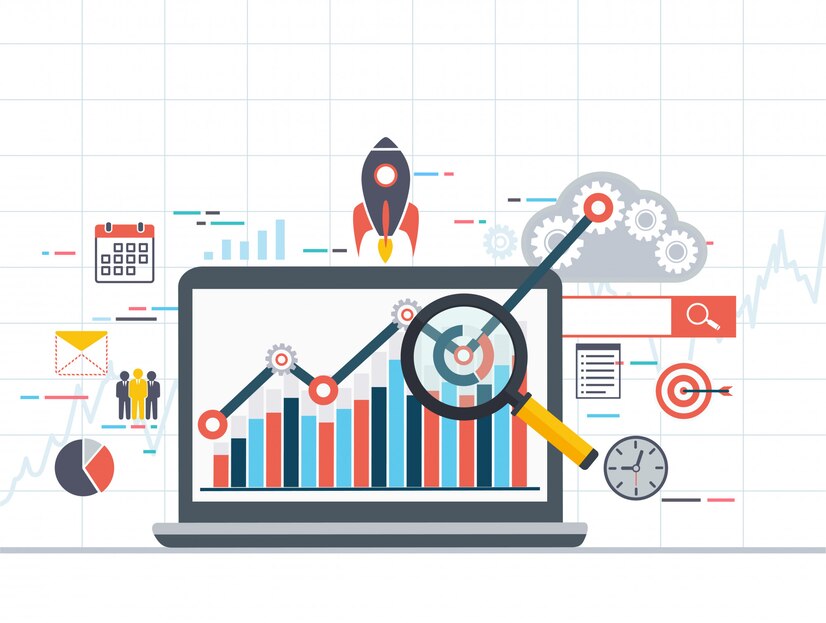
Optimization Strategies
Optimizing website speed involves a combination of technical finesse and strategic decision-making. In this section, we delve into the core optimization strategies employed by digital marketing agencies to enhance the performance of a website.
Comprehensive Performance Analysis:
Before implementing any optimization strategy, a digital marketing agency conducts a thorough performance analysis. This involves assessing various aspects such as page load times, server response rates, and overall website responsiveness. The insights gleaned from this analysis serve as the foundation for targeted optimization efforts.
Image Compression and Optimization:
Images are often a major contributor to slow page load times. Digital marketing agencies employ image compression techniques to reduce file sizes without compromising quality. This not only accelerates load times but also ensures a visually appealing website. Additionally, optimization includes choosing the right file formats and implementing responsive image designs.
Code Minimization and Streamlining
Unnecessary or redundant code can hinder website performance. Digital marketing agencies engage in code minimization and streamlining, eliminating extraneous code that may impede loading times. This process not only enhances speed but also improves the maintainability of the website’s codebase.
Server Optimization
The efficiency of the hosting server significantly influences website speed. Digital marketing agencies assess and optimize server configurations to ensure swift response times. This may involve upgrading server hardware, utilizing caching mechanisms, and optimizing server software to handle increased traffic seamlessly.
Prioritizing Critical Rendering Path
To enhance perceived website speed, digital marketing agencies focus on optimizing the critical rendering path. This involves prioritizing the loading of essential elements that are crucial for the initial visual display of a page. By ensuring the rapid loading of key resources, agencies create a more seamless and engaging user experience.
Lazy Loading for Resource Efficiency
To further optimize website speed, digital marketing agencies implement lazy loading techniques. This strategy involves loading images, scripts, and other elements only when they come into the user’s viewport. By deferring the loading of non-essential resources, lazy loading conserves bandwidth and accelerates the initial page load.
Minimizing HTTP Requests
Each element on a webpage, from images to scripts, requires a separate HTTP request for retrieval. Digital marketing agencies work on minimizing the number of these requests by combining files, utilizing CSS sprites, and employing other consolidation techniques. Reducing HTTP requests is instrumental in expediting overall page load times.
Utilizing Browser Caching
Browser caching is a critical aspect of website speed optimization. Digital marketing agencies implement caching strategies to store static resources like images, stylesheets, and scripts on users’ devices. By doing so, subsequent visits to the website involve less data retrieval, resulting in faster load times for returning visitors.
Browser Caching for Speed Optimization
Browser caching is a fundamental strategy in the arsenal of digital marketing agencies striving to optimize website speed. This section explores the nuances of browser caching and how its strategic implementation contributes to faster load times and a more efficient user experience.
Understanding Browser Caching:
At its core, browser caching involves storing static resources locally on a user’s device the first time they visit a website. Instead of re-downloading these resources with each subsequent visit, the browser retrieves them from the local cache. This significantly reduces load times by minimizing the need for repeated data transfers between the user’s device and the web server.
Types of Resources Cached:
Browser caching typically applies to various types of resources, including images, stylesheets, scripts, and other static elements that don’t frequently change. By caching these resources locally, websites can deliver a faster and more responsive experience to returning visitors.
Setting Cache Lifetimes:
Digital marketing agencies configure cache lifetimes to dictate how long specific resources are stored in a user’s browser cache. While setting longer cache lifetimes can improve load times for returning visitors, it’s crucial to balance this with the need to promptly deliver updated content. Agencies strike a balance by carefully determining optimal cache durations for different types of resources.
Benefits of Browser Caching:
The benefits of browser caching are multifaceted. For returning visitors, cached resources lead to quicker load times, creating a more seamless browsing experience. Additionally, the reduced demand on the server for frequently requested resources contributes to improved server performance and bandwidth efficiency.
Implementation of Cache-Control Headers:
Cache-Control headers are a vital component of effective browser caching. These headers provide instructions to the browser on how to handle caching for specific resources. Digital marketing agencies utilize Cache-Control headers to specify cache durations, control caching behavior, and ensure that the most up-to-date content is delivered when necessary.
Considerations for Dynamic Content:
While browser caching is highly effective for static resources, dynamic content presents unique challenges. Digital marketing agencies employ strategies such as versioning or dynamic content caching to balance the benefits of caching with the need for real-time updates in dynamic elements.
User-Friendly Expirations and Purging:
To maintain a user-friendly experience, digital marketing agencies implement strategies for expirations and purging. This involves automatically updating or purging cached resources when changes are made to the website. By ensuring that users consistently access the latest content, agencies strike a balance between speed optimization and content freshness.
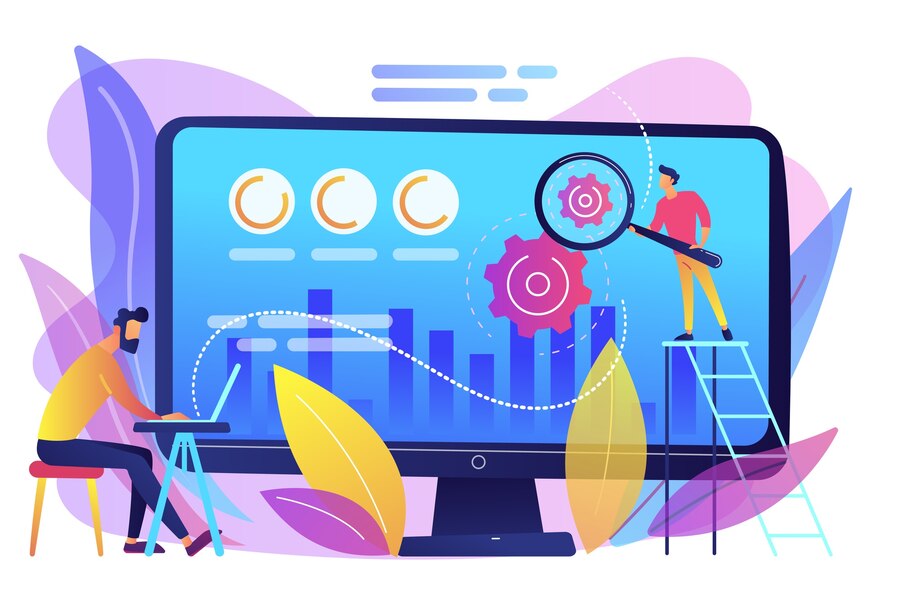
Continuous Monitoring for Sustained Performance
In the dynamic landscape of the internet, achieving optimal website speed is not a one-time effort but an ongoing commitment. Continuous monitoring is the linchpin in this endeavor, ensuring that the performance gains achieved through optimization strategies persist over time. This section explores the significance of continuous monitoring and its role in sustaining peak website performance.
The Imperative of Ongoing Assessment:
Continuous monitoring involves the regular and systematic evaluation of various performance metrics to gauge the health of a website. It goes beyond the initial optimization phase, acknowledging that the digital ecosystem is in constant flux, with factors such as user behavior, technological advancements, and competitor actions influencing website performance.
Real-Time Analytics for Immediate Insights:
Digital marketing agencies leverage real-time analytics tools to gain immediate insights into website performance. These tools provide a granular view of user interactions, page load times, server response rates, and other key metrics. Armed with this real-time data, agencies can swiftly identify and address any emerging issues that may impact website speed.
User Experience Feedback Loops:
User experience is at the heart of website speed optimization, and continuous monitoring includes feedback loops to capture user sentiments. Surveys, heatmaps, and user session recordings offer valuable insights into how visitors interact with the website. By understanding user behaviors and pain points, agencies can fine-tune optimization strategies to align with evolving user expectations.
Identification and Resolution of Performance Bottlenecks:
Continuous monitoring enables the proactive identification of performance bottlenecks. Whether it’s an increase in page load times, a surge in bounce rates, or a decline in server response rates, agencies can swiftly pinpoint the root causes of issues. This allows for targeted interventions to resolve bottlenecks and sustain optimal website speed.
Adaptation to Technological Changes:
The digital landscape is marked by rapid technological advancements. Continuous monitoring allows Digital Marketing Agencies to adapt to these changes seamlessly. Whether it’s a new browser update, changes in search engine algorithms, or emerging web development best practices, agencies can adjust optimization strategies to align with the evolving technological landscape.
Strategies for Proactive Maintenance:
Continuous monitoring extends beyond issue identification to proactive maintenance. Agencies implement strategies such as regular software updates, security patches, and server optimizations to preemptively address potential issues before they impact website speed. Proactive maintenance is integral to sustaining peak performance over the long term.
Benchmarking and Goal Tracking:
Setting benchmarks and tracking performance goals are key components of continuous monitoring. Digital marketing agencies establish baseline metrics during the initial optimization phase and use them as benchmarks for ongoing assessments. By continually tracking progress and striving to surpass predefined goals, agencies ensure a commitment to excellence in website speed.
Measuring the Impact
In the world of website speed optimization, success is quantifiable. This section delves into the crucial task of measuring the impact of optimization efforts, providing insights into the metrics and methodologies used by digital marketing agencies to showcase tangible results.
Defining Key Performance Indicators (KPIs):
The journey of measuring impact begins with the identification of key performance indicators (KPIs). Digital marketing agencies establish a set of KPIs tailored to the specific goals of the website and the desired user experience. Common KPIs include page load times, bounce rates, conversion rates, and overall user engagement metrics.
Page Load Times:
Page load times are perhaps the most direct and tangible metric for assessing the impact of website speed optimization. Agencies leverage tools such as Google PageSpeed Insights, Lighthouse, or various Content Delivery Network (CDN) monitoring tools to measure and analyze the time it takes for a webpage to load. Decreases in load times directly correlate with improvements in user experience.
Bounce Rates:
Bounce rates, indicating the percentage of visitors who navigate away from the site after viewing only one page, are a sensitive indicator of user satisfaction. By optimizing website speed, agencies aim to reduce bounce rates. A lower bounce rate signifies that users are finding the site engaging and are more likely to explore multiple pages.
Conversion Rates:
For many websites, the ultimate goal is to convert visitors into customers, subscribers, or leads. Measuring the impact of website speed optimization includes tracking changes in conversion rates. A faster website often correlates with higher conversion rates, as users are more likely to complete desired actions when the online experience is seamless and efficient.
User Engagement Metrics:
Beyond the immediate interactions captured by bounce rates and conversion rates, user engagement metrics provide a more nuanced understanding of how visitors interact with the website. Metrics such as time on page, number of pages viewed per session, and click-through rates offer valuable insights into the overall impact of website speed on user engagement.
SEO Ranking Improvements:
Improved website speed has a positive ripple effect on search engine optimization (SEO). Agencies monitor changes in search engine rankings and visibility as a result of optimization efforts. Higher rankings and increased visibility in search engine results pages (SERPs) validate the impact of website speed on SEO performance.
User Feedback and Satisfaction Surveys:
Direct feedback from users is invaluable in assessing the impact of website speed optimization. Digital marketing agencies often conduct satisfaction surveys to gather insights into user perceptions. Positive feedback regarding the improved speed and responsiveness of the website provides qualitative evidence of the optimization impact.
Comparative Analysis Over Time:
To showcase the effectiveness of optimization efforts, agencies conduct comparative analyses over time. This involves comparing performance metrics before and after optimization interventions. The resulting data highlights the tangible improvements achieved through website speed optimization strategies.
Case Studies and Success Stories:
Digital marketing agencies leverage case studies and success stories as powerful tools for illustrating the impact of website speed optimization. These narratives showcase real-world examples of businesses that have experienced measurable improvements in user experience, search engine rankings, and overall online success after prioritizing website speed.
Conclusion:
Website speed is paramount in the digital realm, shaping first impressions, search engine rankings, and overall user satisfaction. Digital marketing agencies play a crucial role in optimizing speed through performance analyses, CDN integration, and continuous monitoring. Tangible impacts include improved SEO, reduced bounce rates, and enhanced user experiences. The iterative nature of optimization aligns with the dynamic digital landscape, making sustained excellence a commitment rather than a one-time task. In the pursuit of optimal website speed, businesses and agencies collaboratively create online experiences that captivate users and thrive in the ever-evolving digital era.
Unlocking Success: The Ultimate SEO strategist Guide
A strategist with expertise in SEO
In the vast digital landscape, the role of a SEO strategist is pivotal to enhancing online visibility and driving organic traffic. Let’s delve into the intricacies of what SEO strategy entails, the responsibilities of an SEO strategist, and why having a robust SEO strategy is indispensable in today’s competitive online environment.
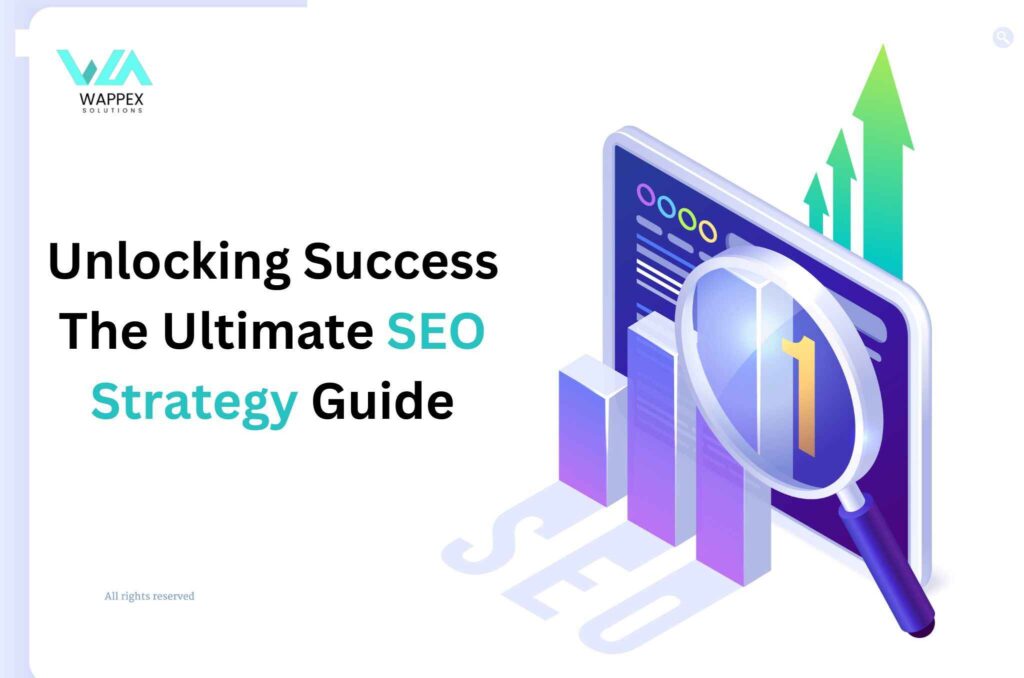
What is SEO Strategy
SEO, or Search Engine Optimization, is the art and science of optimizing a website to improve its visibility on search engines like Google. A well-crafted SEO strategy is the roadmap that guides this optimization process. It involves a meticulous plan to enhance a website’s ranking, increase organic traffic, and ultimately achieve business goals.
The SEO Strategist’s Role
SEO Specialist vs SEO Strategist: Unveiling the Distinction
While an SEO specialist focuses on the technical aspects of optimization, an SEO strategist takes a holistic approach. The strategist not only understands the technical nuances but also crafts a comprehensive plan aligning with the overall business objectives.
What Does an SEO Strategist Do?
An SEO strategist conducts in-depth keyword research, analyzes market trends, and formulates strategies to improve website rankings. Their role extends to content optimization, backlink building, and staying abreast of search engine algorithms to ensure sustained success.
Importance of SEO Strategy
Why SEO Strategy is Crucial for Online Success
In the digital era, where online presence is synonymous with business success, a well-defined SEO strategy is non-negotiable. It not only boosts visibility but also establishes credibility, driving qualified leads and conversions.
Tailoring Strategies for Specific Needs
SEO Strategies for Mobile Devices: Adapting to the Mobile-First Era
With the increasing use of mobile devices, optimizing for mobile search is imperative. A solid SEO strategy for mobile devices involves responsive design, mobile-friendly content, and ensuring fast loading times to cater to the ever-growing mobile user base.
SEO Strategies for 2024: Staying Ahead in the Dynamic Landscape
Anticipating future trends is a hallmark of a successful SEO strategy for 2024. From voice search optimization to AI-driven content, staying ahead of the curve is vital for sustained online success.
SEO Strategies for Small Businesses: Navigating the Challenges
For small businesses, a tailored SEO strategy is essential. It involves local SEO, targeted content creation, and leveraging social media to create a robust online presence within a specific geographical area.
SEO Strategies for Ecommerce Websites: Driving Sales and Conversions
Ecommerce websites require a unique approach. A well-crafted SEO strategy for ecommerce websites involves optimizing product pages, streamlining the checkout process, and implementing effective product schema markup.
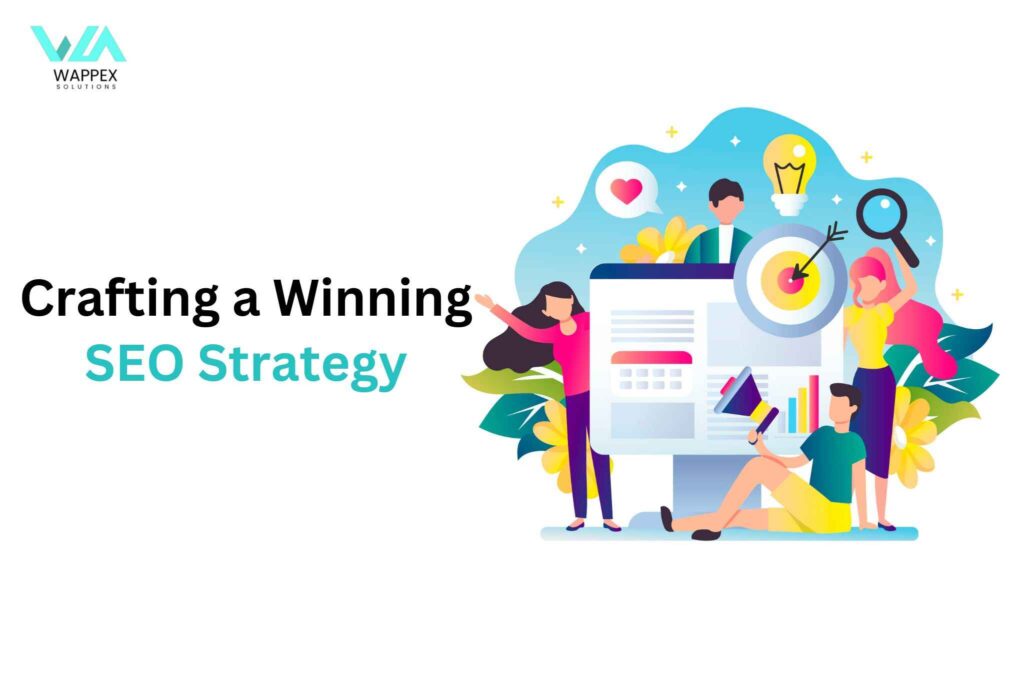
Crafting a Winning SEO Strategy
SEO Backlink Strategy: Building the Pillars of Authority
A robust SEO backlink strategy is the backbone of a successful SEO campaign. Quality backlinks from authoritative sources enhance a website’s credibility, signaling to search engines that the content is trustworthy and valuable.
SEO Blog Strategy: Fueling Engagement and Authority
Blogging is a powerful tool in the SEO arsenal. A well-executed SEO blog strategy involves consistent, high-quality content creation, incorporating relevant keywords naturally, and fostering audience engagement through comments and social media.
SEO Strategy Step by Step: A Systematic Approach
A systematic SEO strategy step by step involves keyword research, on-page optimization, content creation, backlink building, and regular performance monitoring. Each step is crucial, contributing to the overall success of the SEO campaign.
Availing Professional Services
SEO Specialist for Hire: Elevate Your Online Presence
For businesses seeking expertise, hiring an SEO specialist is a wise investment. Professional SEO services can provide tailored strategies, ensuring your website not only ranks higher but also maintains its position amidst evolving search engine algorithms. To explore these services, you can visit Wappex Solutions.
SEO Strategy Agency: Partnering for Success
For a holistic approach to SEO, engaging an SEO strategy agency is beneficial. These agencies bring a wealth of experience, a team of specialists, and a track record of delivering tangible results. Consider partnering with Wappex Solutions for a strategic edge in the digital landscape.
SEO Strategy Company: Elevate Your Digital Presence
A reputable SEO strategy company like Wappex Solutions goes beyond conventional approaches. Their comprehensive strategies encompass on-page and off-page optimization, content creation, and continuous analysis, ensuring your website not only ranks high but also maintains its competitive edge.

Consultancy Services for Optimal Results
Search Engine Optimisation Consultant: Expert Guidance for Success
A dedicated search engine optimization consultant from Wappex Solutions provides expert guidance tailored to your business needs. From technical audits to strategic recommendations, their consultancy services can elevate your SEO game.
Search Engine Optimization Services by Wappex Solutions
As a leading player in the SEO landscape, Wappex Solutions offers a suite of services designed to propel your website to new heights. From on-page optimization to content creation, their search engine optimization services are crafted to deliver tangible and sustainable results.
SEO Optimization Services: Unleashing the Full Potential
Optimize your online presence with Wappex Solutions through their SEO optimization services. Their team of experts ensures that every facet of your website aligns with search engine best practices, maximizing visibility and engagement.
Search Engine Optimization SEO Services by Wappex Solutions
Elevate your online game with Wappex Solutions. Their search engine optimization SEO services cover a spectrum of strategies, from keyword optimization to backlink building, ensuring your website remains ahead of the curve.
Conclusion: Mastering the Art of SEO
In a digital world where visibility is synonymous with success, mastering the art of SEO is imperative. Whether you’re a small business aiming for local dominance or an ecommerce giant eyeing global reach, a well-crafted SEO strategy is your key to unlocking online success.
If you want to read more information about how to boost traffic on your Website Power of Search Engine Optimization (SEO)
